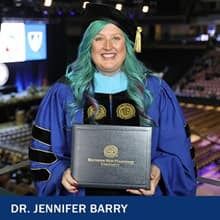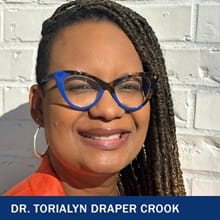
- Self-Development

What’S The Difference Between A Phd And A Professional Doctorate?

- Share on Facebook
- Share on Twitter
PhD vs Professional Doctorate
A PhD (Doctor of Philosophy) and a professional doctorate are both doctoral degrees that require advanced study and research. However, the key difference lies in their focus and purpose.
A PhD is typically more research-focused and geared towards contributing new knowledge to a specific field. It involves conducting original research, writing a dissertation, and defending it before a panel of experts. Pursuing a PhD requires a deep dive into a particular subject area, pushing the boundaries of existing knowledge through rigorous academic inquiry.
Professional Doctorate
On the other hand, a professional doctorate is more practice-oriented and is designed to enhance professional skills and prepare individuals for leadership roles in their respective fields. It often includes coursework, practical training, and a final project or capstone. Professional doctorate programs emphasize the application of theoretical knowledge to real-world challenges, equipping students with the skills necessary to excel in their professions.
Course Structure and Content
In terms of course structure and content, a PhD program is usually more flexible, allowing students to tailor their research to their interests. The emphasis is on independent study and scholarly research, with students having the freedom to explore diverse avenues within their field of study. Conversely, professional doctorate programs may have a more structured curriculum with a focus on applied skills and knowledge relevant to professional practice. These programs often incorporate practical components and experiential learning opportunities to bridge the gap between theory and practical application.
Career Paths
While both a PhD and a professional doctorate can lead to advanced career opportunities, the career paths may differ. A PhD is often a prerequisite for academic and research positions, providing individuals with the credentials to pursue scholarly endeavors and contribute to the academic community through teaching and research. On the other hand, a professional doctorate may be more suitable for individuals seeking leadership roles in industries such as healthcare, education, or business. Professionals with a doctoral degree are equipped to lead organizational change, drive innovation, and make significant contributions to their respective fields.
When deciding between a PhD and a professional doctorate, it is essential to consider your career goals, research interests, and desired outcome. Both degrees offer unique opportunities for personal and professional growth, and choosing the right one depends on your individual circumstances and aspirations. Whether you aspire to become a leading expert in a specific academic field or a visionary leader in a professional setting, understanding the distinctions between a PhD and a professional doctorate will help you make an informed decision that aligns with your future aspirations and goals.

Related Articles

Why sleeping in a dirty room is so bad for sleep quality

How to navigate and communicate changes in sexual attraction over time?

Best way to talk about past sexual trauma with a new partner?
Recent posts.

Do conjoint twins die together?

What are ‘safe words’ and how to use them to enhance communication during sex?

How to discuss and set boundaries around pornography use in a relationship?

13 most erogenous parts of the body… where to touch your girl to turn her on

What’s the difference between a dream and a daydream?
Doctorate vs. PhD: Understanding the Key Differences [2024]
If you’re interested in pursuing a doctoral degree, you may wonder about the differences between a doctorate vs. PhD.

A doctorate and a PhD are both terminal degrees that allow you to develop specialized knowledge and skills in your chosen field. But these degrees typically have different areas of focus, requirements, and career outcomes.
Editorial Listing ShortCode:
Understanding the difference between PhD and doctorate can help you pick the degree that most aligns with your career aspirations and interests.
What’s the Difference Between Doctorate vs. PhD Degrees?

A doctorate and a Ph.D. are the highest college degrees students can earn. Graduates of both types of programs receive the title of “doctor” and may qualify for specialized careers in their fields.
But, while doctorate programs focus on professional competencies and knowledge, PhD programs prioritize academic research.
What Is a Doctorate Degree?

A doctorate degree is a professional degree that enables students to become experts in a specific field or industry. This degree focuses on applying academic research and theories in the workplace to improve performance and solve problems.
Courses vary by field and program but typically emphasize professional skills like collaboration, leadership, and project management. Additionally, many doctorate programs require students to complete a capstone project that addresses real issues affecting their industry.
Graduates often qualify for advanced administrative, leadership, and managerial positions in their fields.
What Is a PhD Degree?

A Doctor of Philosophy (PhD) degree is an opportunity to strengthen your academic research skills and generate original knowledge. This degree trains students to become independent scholars who conduct cutting-edge research in their areas of expertise.
PhD curriculums cover advanced concepts and theories in a discipline. They also teach students qualitative and quantitative methodologies to design studies and conduct research. Additionally, most PhD programs require students to produce a dissertation that contributes fresh knowledge to the field.
Current professionals with PhDs often work as academic researchers and professors. They may also secure government and industry jobs.
Key Differences Between a PhD vs. Doctorate Degree
What’s a PhD degree ? What’s a doctorate degree? The main difference between a doctorate and a PhD is their area of focus. A doctorate prioritizes applied knowledge and professional skills, while a PhD emphasizes academic research. Let’s compare some more differences between a professional doctoral degree vs. PhD.

A doctorate enables students to become expert practitioners in their discipline. Students study existing concepts and theories and learn how to apply these ideas in the workplace.
By contrast, a PhD prepares students to conduct innovative research and educate others.
Goals and Outcomes

Doctorate programs help prepare students for senior administrative and leadership positions in their industries. They also help students enhance their professional competencies and tackle industry-specific challenges.
Students who pursue PhDs aim to advance their disciplines by generating new knowledge. They may also publish peer-reviewed research and teach undergraduate courses.
Student Population

Doctorate degrees are designed for current or aspiring working professionals who want to become industry leaders. These programs also enable students to increase their knowledge and credibility.
PhD programs attract students who want to expand their knowledge of research methodologies and theories. These learners also frequently pursue academic careers.
Admissions Requirements

Doctorate and PhD programs typically require students to have bachelor’s and master’s degrees.
Additionally, prospective doctorate students may be asked to provide evidence of work experience, while PhD students might demonstrate their research abilities with a writing sample.
Program Length

Requirements vary by program, but full-time students typically complete a doctorate in 3 to 5 years. Programs that require a capstone project may take longer. For those considering quick degrees, a number of universities now offer accelerated doctoral programs online .
PhD programs often take 4 to 7 years to finish. The speed at which students research and write their dissertations can significantly impact the timeline.

The curriculum for doctorate programs typically centers on practical skills and contemporary issues in the field. Topics may include communication, ethics, and leadership.
PhD programs offer classes on research methods, theories, and disciplinary trends. Students also learn how to write journal articles and present at conferences.
Assessment and Completion Requirements

Doctorate and PhD students both complete 2 or more years of coursework. They also demonstrate their knowledge during comprehensive exams.
Doctorate students may produce a capstone project that applies their knowledge to real problems. By contrast, PhD students write dissertations based on original research.
If You Have a PhD, Are You a Doctor?

Is a PhD a doctor ? While graduates who earn a PhD are referred to as doctors, a PhD is different from a Doctor of Medicine (MD).
Doctors with MDs are medical doctors who can legally prescribe medications, perform surgery, and treat patients. They typically apply existing medical knowledge instead of conducting research. Doctors with PhDs don’t have any of these abilities. Instead, they have specialized knowledge and perform academic research in a particular field.
PhD or Doctorate Degree – Which Is Right for You?

Understanding the difference between a doctorate and a PhD can help you select the right degree for you.
Professional doctorate degrees help students become leading practitioners and problem solvers. By contrast, PhD degrees enable students to hone their research skills and learn advanced concepts. Both degrees allow you to enrich your understanding of your chosen discipline or profession. They also help you boost your credentials and develop new skills.
After you decide between a doctorate degree vs. PhD, you can explore program options from accredited schools to find the best fit.


Why Earn a Professional Doctoral Degree?

A doctoral degree is the highest degree you can obtain in the United States. The most common forms are:
- Research or academic (PhD) programs
- Professional doctoral degrees
So, what’s the difference between a PhD and a professional doctoral degree? Although they sound similar, professional degrees and doctoral degrees are two different types of programs, each suited to a particular type of student.
A PhD, or doctoral degree , is an academic, research-based degree in which the main goal is to develop advanced research skills and create new knowledge to share with others.
In contrast, a professional doctorate , or a professional degree , is focused on the advanced practice of knowledge and skills, making it a degree for those who are more professionally oriented. While these programs also help to develop research skills, the main focus is to apply knowledge to industry to solve new and emerging problems.
Learn More: Professional Degrees vs. Academic Degrees: What’s the Difference?
Interest in professional doctoral programs has been growing in recent years, largely due to the evolving needs of employers and the desire of professionals to improve their skills and knowledge.
There are many reasons why you might want to go back to school for a professional degree. Here are five ways a professional doctorate could benefit your career.
5 Ways Earning a Professional Doctoral Degree Can Benefit Your Career
1. you’ll be equipped to impact your industry..
A professional degree program will prepare you to have an impact on, and potentially transform, your chosen field. Professional doctoral candidates usually take an existing concept or problem in their industry, conduct thorough research, and propose possible solutions.
The goal of this process is to expound upon existing knowledge or uncover new findings within a field, and the results can have a significant social and economic impact.
2. You can qualify for top-level positions.
A strong professional doctoral degree candidate is someone who is fairly well-established in a field or career. This is someone who might already be a decision-maker or manager but who wants to develop refined and sophisticated skills to move into the top levels of decision-making.
A rigorous professional doctoral program will push your boundaries and teach you how to think through and solve complex problems that you can translate directly to your industry.
3. You’ll demonstrate higher-level skills.
Holding a professional doctorate doesn’t just show—it proves you have mastered top-level skills in writing, research, and analysis. Many fields now demand top professionals to have these advanced abilities
Obtaining a professional degree demonstrates the effort that you have dedicated to achieving the highest level of education in your subject and positions you as a master in the skills associated with your field of study.
4. You will grow your professional network.
Whether you’re taking courses online or face-to-face, your soon-to-be classmates represent a wide swath of fields and sectors, and they’re all in school to improve themselves professionally. These people become not only a great professional network but also your support system.
Taking a variety of competitive people and putting them in a classroom together to challenge one another will help push all of you further than you could have gone by yourselves. Building your professional network can have huge benefits for your career as well, as it can help you exchange industry expertise and even aid in securing a job.
5. You’ll command a higher salary.
An important reason to consider a doctoral degree is that in many fields, earning your doctorate could increase your earning potential with your current or future employers. The expected lifetime earnings for someone with a doctoral degree is $4.3 million, according to the latest data from the Bureau of Labor Statistics. What’s more, professionals with doctoral degrees earn 25% more annually than those with just a master’s.
After sacrificing time and money to get your degree, this might be music to your ears. Of course, some fields will have a higher payoff than others. Make sure you carefully consider your future earning potential when calculating your return on investment.
Is a Professional Doctorate Right For You?
If you are considering earning a professional doctoral degree , it is important to understand how this course of action can help you achieve both your personal and professional goals. As outlined above, there are valuable benefits to obtaining a professional doctorate, like industry impact, advanced skills, and increased earning potential that can make it worthwhile.
On the other hand, if you are more interested in applying your knowledge in the world of academia or industry leadership, an academic- or research-based doctoral program may be better suited to your goals.
Ready to Learn More?
Explore Northeastern’s professional doctoral programs to find the one that can best help you achieve your goals.
FIND YOUR PROGRAM
Editor’s note: This content was originally published in April 2016 and has been updated for thoroughness, accuracy, and recency.
Subscribe below to receive future content from the Graduate Programs Blog.
About shayna joubert, related articles.

5 Tips to Get the Most out of Grad School

Is Earning a Graduate Certificate Worth It?

7 Ways a Master’s Degree Can Help You Get Ahead
Did you know.
Advanced degree holders earn a salary an average 25% higher than bachelor's degree holders. (Economic Policy Institute, 2021)
Northeastern University Graduate Programs
Explore our 200+ industry-aligned graduate degree and certificate programs.
Most Popular:
Tips for taking online classes: 8 strategies for success, public health careers: what can you do with an mph, 7 international business careers that are in high demand, edd vs. phd in education: what’s the difference, 7 must-have skills for data analysts, in-demand biotechnology careers shaping our future, the benefits of online learning: 8 advantages of online degrees, how to write a statement of purpose for graduate school, the best of our graduate blog—right to your inbox.
Stay up to date on our latest posts and university events. Plus receive relevant career tips and grad school advice.
By providing us with your email, you agree to the terms of our Privacy Policy and Terms of Service.
Keep Reading:

The 8 Highest-Paying Master’s Degrees in 2024

Graduate School Application Tips & Advice

How To Get a Job in Emergency Management

Join Us at Northeastern’s Virtual Graduate Open House | March 5–7, 2024
What Is a Doctorate Degree?
A doctorate is usually the most advanced degree someone can get in an academic discipline, higher education experts say.
What Is a Doctorate?

Getty Images
It's unwise to apply to a doctoral program if you don't have a clear idea of how you might use a doctorate in your career.
In many academic disciplines, the most advanced degree one can earn is a doctorate. Doctorate degree-holders are typically regarded as authorities in their fields, and many note that a major reason for pursuing a doctorate is to increase professional credibility.
"If someone wants to be respected as an expert in their chosen field, and also wants to have a wider array of options in research, writing, publishing, teaching, administration, management, and/or private practice, a doctorate is most definitely worth considering," Don Martin, who has a Ph.D. in higher education administration , wrote in an email.
A doctoral degree is a graduate-level credential typically granted after multiple years of graduate school, with the time-to-degree varying depending on the type of doctoral program, experts say.
Earning a doctorate usually requires at least four years of effort and may entail eight years, depending on the complexity of a program's graduation requirements. It also typically requires a dissertation, a lengthy academic paper based on original research that must be vetted and approved by a panel of professors and later successfully defended before them for the doctorate to be granted.
Some jobs require a doctorate, such as certain college professor positions, says Eric Endlich, founder of Top College Consultants, an admissions consulting firm that helps neurodivergent students navigate undergraduate and graduate school admissions.
Endlich earned a Doctor of Philosophy degree, commonly known as a Ph.D., from Boston University in Massachusetts. He focused on psychology and notes that a doctoral degree is generally required to be a licensed psychologist.
"Since a Ph.D. is a research-focused degree, it can be advantageous to those seeking high-level research positions in scientific fields such as astrophysics or biotechnology," he says.
How Long it Takes to Get a Doctorate Degree
Martin, founder and CEO of Grad School Road Map, an organization that helps grad school applicants navigate the admissions process, says obtaining a doctorate is often a lengthy endeavor.
"Typically it can take between four and six years to complete any doctoral program," he says. "If comprehensive examinations and a dissertation are part of the graduation requirements, it may take a year or two longer. There is no standard amount of time – some students take seven to 10 years to finish."
Endlich says doctoral degree hopefuls should be aware that completing a dissertation may take a long time, especially if unexpected hurdles arise.
"My dissertation, for example, involved recruiting college students to complete questionnaires, and it took much longer than I anticipated to recruit enough subjects for my study," he says.
The standards for a dissertation, which include the proposal and research, are rigorous and usually involve a review and approval by a faculty committee, says Hala Madanat, vice president for research and innovation at San Diego State University in California.
"As part of dissertation requirements, some programs will require publication of the research in high-impact peer-reviewed journals," Madanat wrote in an email.
Types of Doctoral Degree Programs
According to professors and administrators of doctoral programs, there are two types of doctorates.
Doctor of Philosophy
A doctor of philosophy degree is designed to prepare people for research careers at a university or in industry, and teach students how to discover new knowledge within their academic discipline. Ph.D. degrees are offered in a wide range of academic subjects, including highly technical fields like biology , physics, math and engineering; social sciences like sociology and economics; and humanities disciplines like philosophy.
A Ph.D. is the most common degree type among tenure-track college and university faculty, who are typically expected to have a doctorate. But academia is not the only path for someone who pursues a Ph.D. It's common for individuals with biology doctorates to work as researchers in the pharmaceutical industry, and many government expert positions also require a Ph.D.
Professional or clinical doctorates
These are designed to give people the practical skills necessary to be influential leaders within a specific industry or employment setting, such as business, psychology , education or nursing . Examples of professional doctoral degrees include a Doctor of Business Administration degree, typically known as a DBA; a Doctor of Education degree, or Ed.D.; and a Doctor of Nursing Practice degree, or DNP.
A law degree, known as a juris doctor or J.D., as well as a Doctor of Medicine degree, or M.D., are also considered professional doctorates.
How to Get a Doctorate
Getting a doctorate is challenging. It ordinarily requires a series of rigorous classes in a field of study and then passage of a qualification exam in order to begin work on a dissertation, which is the final project.
Dissertations are difficult to write, says David Harpool, vice president of graduate and online programs at Newberry College in South Carolina. Some research indicates that only about half of doctoral students go on to finish their degree, and a main reason is that many never finish and successfully defend their dissertation
"Many of them are in programs that permit them to earn a master’s on the way to a doctorate," Harpool, who earned a Ph.D. from Saint Louis University in Missouri and a J.D. from the University of Missouri , wrote in an email. "The transition from mastering a discipline to creating new knowledge (or at least applying new knowledge in a different way), is difficult, even for outstanding students."
Learn about how M.D.-Ph.D. programs
There is a often a "huge shift in culture" at doctoral programs compared to undergraduate or master's level programs, says Angela Warfield, who earned a Ph.D. in English from the University of Iowa.
Doctoral professors and students have more of a collaborative relationship where they function as colleagues, she says. And there's pressure on each student to produce "significant and original research."
Many full-time doctoral students work for the school as researchers or teaching assistants throughout their program, so time management is crucial to avoid burnout. However, the dissertation "is by far the biggest battle," she says. The goal is to avoid an "ABD," she says, meaning "all but dissertation."
"In my writing group, we had two motivational slogans: 'ABD is not a degree,' and 'a good dissertation is a done dissertation,'" Warfield, now the principal consultant and founder of admissions consulting firm Compass Academics, wrote in an email.
How Are Doctorate Admissions Decisions Made?
Admissions standards for doctoral programs vary depending on the type of doctorate, experts say.
The quality of a candidate's research is a distinguishing factor in admissions decisions, Madanat says. Meanwhile, leaders of clinical and professional doctorate programs say that the quality of a prospective student's work experience matters most.
Doctoral programs typically expect students to have a strong undergraduate transcript , excellent letters of recommendation and, in some cases, high scores on the Graduate Record Examination , or GRE, Endlich says.
"The size of the programs may be relatively small, and universities need to be sure that applicants will be able to handle the demands of their programs," he says.
Because professional doctorates often require students to come up with effective solutions to systemic problems, eligibility for these doctorates is often restricted to applicants with extensive first-hand work experience with these problems, according to recipients of professional doctorates.
In contrast, it's common for Ph.D. students to begin their programs immediately after receiving an undergraduate degree. The admissions criteria at Ph.D. programs emphasize undergraduate grades, standardized test scores and research projects , and these programs don't necessarily require work experience.
Admissions decisions may also depend on available funding, says Madanat, who works with doctoral students to provide funding, workshops and faculty support to help their research.
Who Is a Good Fit for a Doctoral Program?
Doctoral degree hopefuls "should be interested in making a deep impact on their field, open-minded, eager to learn, curious, adaptable and self-motivated," Madanat says. "Doctoral programs are best suited for those whose goals are to transform and change the fields they are studying and want to make a difference in the way the world is."
Someone who loves to study a subject in great depth, can work alone or in teams, is highly motivated and wants to develop research skills may be a good candidate for a doctoral program, Endlich says.
Because of the tremendous effort and time investment involved in earning a doctorate, experts say it's foolish to apply to a doctoral program if it's unclear how you might use a doctorate in your career.
"The students are being trained with depth of knowledge in the discipline to prepare them for critical thinking beyond the current state of the field," Madanat says. "Students should consider the reasons that they are pursuing a doctoral degree and whether or not it aligns with their future professional goals, their family circumstances and finances."
Rachel D. Miller, a licensed marriage and family therapist who completed a Ph.D. degree in couples and family therapy at Adler University in Illinois in 2023, says pursuing a doctorate required her to make significant personal sacrifices because she had to take on large student loans and she needed to devote a lot of time and energy to her program. Miller says balancing work, home life and health issues with the demands of a Ph.D. program was difficult.
For some students, the financial component may be hard to overlook, Warfield notes.
"Student debt is no joke, and students pursuing graduate work are likely only compounding undergraduate debt," she says. "They need to really consider the payoff potential of the time and money sacrifice."
To offset costs, some programs are fully funded, waiving tuition and fees and providing an annual stipend. Some offer health insurance and other benefits. Students can also earn money by teaching at the university or through fellowships, but those adding more to their plate should possess strong time management skills, experts say.
"Graduate school, and higher education in general, can be brutal on your physical and mental health," Miller wrote in an email.
But Miller says the time and effort invested in her doctoral program paid off by allowing her to conduct meaningful research into the best way to provide therapy to children affected by high-conflict divorce and domestic violence. She now owns a therapy practice in Chicago.
Miller urges prospective doctoral students to reflect on whether getting a doctorate is necessary for them to achieve their dream job. "Really know yourself. Know your purpose for pursuing it, because that's what's going to help carry you through."
Searching for a grad school? Access our complete rankings of Best Graduate Schools.
30 Fully Funded Ph.D. Programs

Tags: graduate schools , education , students , academics
You May Also Like
Questions women mba hopefuls should ask.
Haley Bartel April 12, 2024

Law Schools With the Highest LSATs
Ilana Kowarski and Cole Claybourn April 11, 2024

MBA Programs That Lead to Good Jobs
Ilana Kowarski and Cole Claybourn April 10, 2024

B-Schools With Racial Diversity
Sarah Wood April 10, 2024

Law Schools That Are Hardest to Get Into
Sarah Wood April 9, 2024

Ask Law School Admissions Officers This
Gabriel Kuris April 9, 2024

Grad School Housing Options
Anayat Durrani April 9, 2024

U.S. News Ranks Best Graduate Schools

MBA Scholarships
Sammy Allen April 4, 2024

Special Master's Programs and Med School
Renee Marinelli, M.D. April 2, 2024

- Skip to primary navigation
- Skip to main content
CollegeRank.net
Best College Rankings
Doctorate vs PhD: What’s the Difference?
Quick Highlights:
- Professional doctorates and PhDs differ in focus , duration , and potential career earnings .
- Both are doctoral degrees, but a PhD is specifically academic and focused on original research.
- Professional doctorates (like an Ed.D, M.D., DBA) are applied and tailored to specific professions.
- In most cases, you’ll need to complete a bachelor’s and a master’s degree before pursuing a doctoral degree.
In the academic world, achieving a doctoral degree represents the highest level of study within a field. These degrees grant their recipients not only more knowledge within their particular field, but also more respect and more upward mobility in their careers.
Is a doctorate a PhD? Often, the terms doctoral degree and doctor of philosophy, or Ph.D., are used interchangeably. This isn’t 100% accurate, though. There are subtle but important differences that set a doctoral degree apart from a Ph.D. degree. These differences are critical to understand before you plan your own path through higher education. Doctorate vs PhD, what is the difference ?
Related: How to Prepare for your Graduate School Interview
What Is a Doctoral Degree?

A doctoral degree is a general term for a terminal degree that usually is awarded when someone pursues their studies beyond the level of a bachelor’s and a master’s degree. Doctoral degrees can be awarded in any number of fields, from education and English literature to chemistry and calculus.
Doctoral degrees typically come in two forms:
- a professional (also known as applied doctorate)
- an academic doctorate
Related: What is a Terminal Degree?
What is an Applied Doctorate Degree?
Professional or applied doctorate degrees qualify someone to work in a specific profession. This includes things like:
Doctor of Medicine (M.D.)
Doctor of Business Administration (DBA)
Doctor of Education (Ed.D.)
Degree holders with a professional doctorate degree are qualified to work at the highest level within their field.
These professional degrees require academic research. It will culminate in a dissertation which must be defended in front of a group. A dissertation, like a thesis, is a lengthy and involved paper that incorporates research and applies a theory to make advances within the field.
Some of the most common fields for a professional doctoral program are:
- Physical therapy
- Osteopathic medicine
- Occupational therapy
- Educational leadership
- Medicine
We’ll discuss a few of the most common professional doctorate degree programs below.
Related: What Is The Difference Between College and University?
An Ed.D. is a professional doctorate for educators with teaching and administration responsibilities as well as those working in nonprofits and governmental agencies. These programs offer advanced leadership training which can help students advance their career. Students learn effective strategies to solve real-world problems they’ll encounter out in the field.
Ed.D. programs do not follow a standard curriculum. Each program is unique, and many can be tailored to meet the needs of each individual student. Some are offered online while others follow a more traditional format.
Doctor of Business Administration
The DBA is a professional degree for business professionals. These programs build upon the skills taught in an MBA program. Students are often accomplished executives who want to be better, more innovative business leaders.
DBA students conduct practical research that directly applies to the business world. Students will develop new insights and solutions to business challenges.
Doctor of Psychology (PsyD)
Psychology is an area where students can choose to complete either a Ph.D. or a PsyD degree. A PsyD degree emphasizes the clinical and applied aspects of psychology. This degree is growing in popularity for several different reasons:
- Completion time is often less than a traditional PhD
- Specialization options
- Opportunity to complete a dual degree (MSW or MPH are popular)
The PsyD focuses on practice over research so students begin working on fieldwork sooner in the program. This hands-on experience is valuable as students begin to build their professional portfolio.
Related: Best Online Doctorates in Psychology
An M.D. is the degree of choice for students planning a career in medicine. These highly competitive and rigorous programs include the classroom and intensive training students need to join the medical field.
M.D. programs usually require students to complete four years of medical school followed by a residency. The residency can take between two and five years depending on the area of medicine.
While an M.D. degree requires a significant commitment of time and money, the investment plays off with a high salary and job security.
Doctor of Optometry (O.D.)
An O.D. an expert in primary eye care. They diagnose and manage diseases and disorders of the eye. An O.D. degree can take between eight and nine years of education beyond high school. Students take classes in areas like:
- gross anatomy
- neuroscience
- biochemistry
An optometrist can determine if an individual needs corrective lenses or contacts to improve their vision. They can check for signs of glaucoma or other degenerative eye conditions. In some states, an optometrist can prescribe certain medications.
Regardless of the individual field that you pursue, you can know that a doctoral degree will make you a highly qualified candidate for upper level positions in your field.
What Is a Doctor of Philosophy (Ph.D.) Degree?
Academic doctorates, on the other hand, are degrees that qualify someone to study, research, or teach at the highest level in his or her field. At some schools, like Franklin University, professional doctorates are referred to as an application oriented-degree while Ph.D.s, or academic doctorates, are referred to as research degrees.
A Ph.D. is actually a specific type of doctoral degree. This means that rather than being completely separate from one another, Ph.D.s are really just a specific subtype of the umbrella term “doctorate degree.”
A Ph.D. is an academic degree focused on original research and the application of new ideas to existing knowledge. This research based degree emphases research skills that allow student to contribute to the advancement of their field. Lots of people falsely believe that a Ph.D. is limited to fields in the social sciences. This is likely due to the word “philosophy” in the title. Rather than meaning philosophy in the modern sense, though, the word philosophy in a Ph.D. refers to its Latin origins, meaning “love of wisdom”.
The reality is that Ph.D.s are research degrees available in many fields. Some of the most common degree fields for a Ph.D. include:
- Applied mathematics
- Accounting and finance
- Biomedical engineering
- Chemical engineering
- Clinical psychology
- Computer science
- Counseling psychology
- Data analysis
No matter what kind of Ph.D. you undertake, you will always graduate from a Ph.D. program with a high level of competence, respect, and mobility within your career field.
How To Apply for a PhD vs Doctorate Program

Once you’ve made the choice between a professional degree versus doctorate , you’ll need to figure out how to apply to your chosen program. Because Ph.D. programs are simply a specific type of a doctorate program, the application process varies more by school than it does by degree type.
In general, when you apply to a doctoral program, you’ll need to have already completed a bachelor’s and a master’s degree. In many cases, your bachelor’s degree can be in any field. It does not need to be related to the field you’re pursuing at the professional level. In most cases, your master’s does need to be related in some way.
If it’s not, there’s a strong likelihood that you’ll need to complete some prerequisite graduate-level classes before you can apply for your doctorate program. You’ll need to check with each program about the prerequisites before you apply.
Once you’re sure that you meet the prerequisites required of a doctoral student, you’ll also need to get your application materials. Generally this means:
- transcripts from your undergrad and graduate school coursework
- letters of recommendation
- an essay or statement of purpose
- recent GRE or GMAT scores
Again, application requirements will vary by school so you’ll want to check directly with those you’re applying to.
PhD vs Doctorate Degree: Which is Longer?

The amount of time it takes to complete your doctorate vs PhD degree will largely depend on what work you’ve done before it, and whether you’ll be pursuing it part-time or full-time. If you have completed a master’s in the field already, you will need to complete fewer credits to complete the doctoral degree.
At some schools, there is an option to combine your master’s with your doctorate degree. These accelerated programs usually allow you to take a year of study off your total commitment.
Still, terminal degrees are no small time commitment. Most degrees take anywhere from five to eight years to complete when pursued full-time. In general, Ph.D. programs tend to take slightly longer than professional doctorates. For example, to complete a doctor of education (Ed.D.) degree, doctoral students must complete at least 60 credits. In contrast, Ph.D. students completing a Ph.D. in Education must complete 90 credits.
Earning Potential of a Professional Doctorate vs PhD

While a professional doctorate and a Ph.D. are seemingly very similar, they do differ in terms of earning potential.
This is likely because many Ph.D. programs lead to careers in teaching or research. These are two fields that are notoriously low in funding, unless you find one of the relatively less common highly paid positions in these fields.
According to the Bureau of Labor Statistics, the average salary for a postsecondary teacher at colleges or universities is about $80,000. The average salary of postsecondary teachers in the field of scientific development and research is more, at nearly $110,000, and the average salary of a researcher in the field of medical science is nearly $90,000.
Compare these salaries to those of professional doctorates like a medical doctor or a lawyer. A medical doctor earns an average salary of $208,000 while a lawyer receives an average salary of roughly $123,000.
Doctoral Degree vs PhD: How Do They Stack Up?

While a Ph.D. is simply a subtype of doctorate, there are some distinct differences that set it apart from professional doctorate degrees.
While Ph.D.s are typically heavy on research, professional doctorates are heavy on application of knowledge to a specific professional field. The body of knowledge developed in a Ph.D. program may be slightly broader, while the knowledge built in a professional doctorate program is tailored more directly to a specific career.
Both programs have similar application processes, but the Ph.D. program may take slightly longer to complete on average than the professional doctorate program does. Finally, professional degree PhD program graduates tend to earn slightly more than Ph.D. graduates.
If you’re interested in pursuing a doctorate degree, you’ll need to consider a professional doctorate degree vs PhD. You’ll want to research your programs before applying. Sites like CollegeRank can help you to narrow your options by providing curated college rankings geared to a number of different factors, from campus size to return on investment, and more.

- October 11, 2023
- Education Advice
Ph.D. vs. Doctorate: What are the Differences?
UOTP Marketing

For those who have a deep-seated attitude, pursuing a doctoral degree can be a tough yet beneficial journey. Currently enrolled in a doctorate program means that a person has already scooched over college admissions, went through high stake tests and exams, and finished all those research papers and long hours spent in university libraries hitting the books. While studying for a doctorate entails asserting oneself to an extensive amount of quality time and money , its significance and purpose usually pave the way to a lucrative end.
After having finished the Master’s Degree , students begin to think about their next step in their academic career. Then, paradoxically, while navigating through academia, they find themselves baffled by the immense terms and terminologies used to label specific degrees. Because the terms “Doctorate” and “Ph.D.” are somehow interlocked and overlap, and because “PhD” is sometimes used inconsistently, it can lead to considerable confusion. Ph.D. vs. Doctorate? You might wonder what their difference is, and why they are important. E xplaining what each of these terms stands for, the difference between them, and why they are valuable, can help you steer yourself down the right path from the outset.
Doctorate Degree vs. Ph.D.

At first glance, it is pretty easy to confuse these two terms. But it is important for everyone to be able to make a distinction between the two. In this article, we will discuss the difference between Ph.D. and Doctorate in detail in order to get rid of any confusion you may have. In the academic world, the terms Doctorate and Ph.D. are currently used interchangeably. Both of them are the top cap of the ladder. However, a doctorate is mostly used as an umbrella term covering many fields ranging from professional degrees, humanities, and scientific disciplines.
A Ph.D. or Doctor of Philosophy, on the other hand, is a subcategory of a doctoral degree, it is much more distinct and clear-cut and is usually narrower in nature encompassing only humanities and scientific fields. In plain English, when someone says they are enrolling on a doctoral degree, it means they are doing a Ph.D. in a specific field. So, technically, in common parlance, there is no difference between the two terms.
But at the other end of the spectrum, one should be careful not to confuse a professional doctoral degree with a Ph.D. The former is more practical and is designed to prepare students to apply existing knowledge to find solutions to real-life problems and has a direct application to a particular profession.
A Ph.D. is theoretical by nature and is more academic and research-focused. it is often fixed on disseminating knowledge by conducting authentic research which means reviewing and identifying gaps in current literature and evaluating the relevance of existing and emerging theories within a particular field.
What Is a Ph.D. Degree and Why Should You Go for It?
Students who acquire a Ph.D. are justly proud — they wear it as a badge of identity in the academic elite. Traditionally, a Ph.D. was associated with teaching, which from Latin licentia docendi meant “license to teach”. However, the concept of Ph.D. has been on shifting sands nowadays and has become a more general term that isn’t necessarily confined to teaching only.
The Value of a PhD

Obtaining a Ph.D. helps you capitalize on the emerging academic opportunities making you more easily identifiable to employers or businesses seeking to fill professional, higher-level job positions. Many of these career options, conversely, are not available to those who do not belong to the Ph.D. club. While pursuing a Ph.D. requires devoting a tremendous effort and time and making significant personal sacrifices pushing the boundaries of knowledge, it’s all in service of the area of study you’re most passionate and zealous about. Ultimately, once you’ve attained your Ph.D., you will have achieved the pinnacle of education— something not too many people have or are able to accomplish.
FREE RESOURCE

A Guide to Choosing and Applying to Ph.D. Programs
Learn everything you need to know about selecting and applying to Ph.D. programs. Learn tips and tricks for a successful application and find your ideal program today!
What Is a Doctorate Degree?
A doctoral or doctorate degree is usually the most advanced degree one can earn in an academic discipline. Many pursue a doctorate degree to increase their professional credibility, be acknowledged as an expert in a specific field, and improve their resume.
A doctorate degree is a graduate-level credential that is usually earned after multiple years of graduate school. Earning a doctoral degree requires a significant level of research and work. In order to get this degree, one has to research a subject thoroughly, conduct new research and analysis, and provide a solution or interpretation into the field. But what types of doctoral degrees are available?
Types of Doctorate Degrees
There are two categories of doctorate degrees: an academic degree and a professional doctorate degree. An academic degree focuses on research, data analysis, and the evaluation of theory. A professional doctorate degree, on the other hand, is considered a terminal degree, which means that one has achieved the most advanced degree in the field. This degree is specifically designed for working professionals who want to grow in their careers.
Professional Doctorate Degrees
A professional doctorate is designed for working professionals who have experience in the field and want to increase their knowledge, improve their credibility, and advance their careers. This degree focuses on applying research to practical issues, coming up with interpretation and solutions, as well as designing effective professional practices within a particular field.
Professional doctoral degrees include:
Doctor of Business Administration (DBA)
The DBA degree is ideal for students who already have a general business background and are interested in delving deeper into the practical and theoretical aspects that underpin business education. More to the point, in DBA you will develop the ability to solve real-life problems, discover the relevant expertise to innovate and uphold complex business issues and so much more. Upon completion, DBA students will possess enhanced leadership and strategic skills as well as the tools to propel their careers in today’s marketplace. The Business Administration industry is keen on finding such graduates with business skills and this is indicated by the immense job positions currently available.
Doctor of Education (Ed.D.)
If you are interested in setting your eyes on creating lifelong learning among your students, making a positive influence in educational culture, contributing to the growing body of research in the education realm , or just enhancing your subject matter expertise, the Doctor of Education program ticks all the boxes. This degree maintains a rigorous approach in academic education that prepares graduates to showcase the skills and expertise to devise solutions in tackling the challenges in contemporary education practice and become transformational leaders in the industry.
Doctor of Computer Science (DCS)
The demand for computer scientists has reached its peak and it is among the most sought-after positions nowadays. With a degree in DCS, you will have the opportunity to design, apply innovative experiments, predict trends and, ultimately, develop a richer understanding and contribute to your area of expertise. After all, who doesn’t want an exciting and financially stable career?
Interested in pursuing a degree?
Fill out the form and get all admission information you need regarding your chosen program.
This will only take a moment.
Message Received!
Thank you for reaching out to us. we will review your message and get right back to you within 24 hours. if there is an urgent matter and you need to speak to someone immediately you can call at the following phone number:.
By clicking the Send me more information button above, I represent that I am 18+ years of age, that I have read and agreed to the Terms & Conditions and Privacy Policy , and agree to receive email marketing and phone calls from UOTP. I understand that my consent is not required to apply for online degree enrollment. To speak with a representative without providing consent, please call +1 (202) 274-2300
- We value your privacy.
Doctor of Medicine (M.D.)
The Doctor of Medicine degree is designed to prepare you for various medical challenges in different settings nationally and internationally. This program will further develop your critical thinking and clinical reasoning skills required for safe, high-quality medical practices. It will also improve your leadership, communication, and teamwork skills for collaborative patient care.
Doctor of Optometry (O.D.)
This professional degree typically requires four years of study. It focuses on basic biological sciences such as anatomy and physiology, microbiology, neuroanatomy, and so on. This doctoral degree will prepare, educate, and train professionals to practice at the highest level of proficiency, professionalism, and integrity.
Doctor of Psychology (PsyD)
The Doctoral of Psychology degree concentrates on the clinical and applied aspects of psychology. This type of doctorate prepares students for professional practice and clinical placement. This degree will be highly beneficial when working directly with patients who need psychology services. In addition, this degree allows doctors of psychology to confidently function as researchers and clinicians.
How to Choose a Ph.D. Program?
Choosing a Ph.D. program can be pretty challenging; it is a big academic decision and investment that requires commitment and perseverance. But how can you pick the right Ph.D. program for you? Well, there are some tips to help you choose the best fit for your goals and preferences:
- Think about the reasons why you want a Ph.D., what you expect to gain from it, and whether it is compatible with your professional goals.
- Consider your research environment.
- Take your time to research, compare, and consider multiple opportunities carefully.
- Pick a subject that interests and motivates you but is also practical.
- Ask your professors and other scholars in the field for advice.
All in all, the terms “Doctorate’’ and “Ph.D.” are in essence the same, which means all Ph.D. students are Doctoral students as well. On the other hand, earning a Ph.D. degree is no joke. If anything, Ph.D. students have the tenacity, patience, persistence, and years of hard work that you can vouch for. Ultimately, deciding what type of doctoral degree you should hop on, depends on your career goals, what you are passionate about and how you are going to achieve it.
Frequently Asked Questions
What is the difference between a doctorate and a ph.d..
In academic contexts, the terms “Doctorate” and “Ph.D.” are often used interchangeably, but there is a distinction. A Doctorate is an umbrella term covering a wide range of fields, including professional degrees, humanities, and scientific disciplines. A Ph.D., or Doctor of Philosophy, is a specific type of doctoral degree, typically focused on research and academic pursuits in the humanities and scientific fields.
Why should I pursue a Ph.D.?
Pursuing a Ph.D. can be a valuable endeavor, as it opens up academic and research opportunities, enhances your expertise in a specific field, and makes you more attractive to employers seeking candidates for high-level positions. It’s a chance to push the boundaries of knowledge and become an expert in your chosen study area.
What are the benefits of a professional doctorate?
Professional doctorate degrees, such as Doctor of Business Administration (DBA) or Doctor of Education (Ed.D.), are designed for working professionals who want to apply research to practical issues in their field. These degrees can enhance your career prospects, leadership skills, and problem-solving abilities within your profession.
How do I choose the right Ph.D. program?
To choose the right Ph.D. program, consider your career goals, research environment, and personal interests. Take your time to research and compare programs, seek advice from professors and experts in your field, and ensure that the program aligns with your professional aspirations.
What are the main differences between academic and professional doctorate degrees?
Academic doctorate degrees focus on research, theory evaluation, and data analysis, often leading to careers in academia or research. Professional doctorate degrees are more practical, designed for working professionals, and concentrate on applying research to real-world problems within a specific field.
Can I earn a Ph.D. in any field?
Ph.D. programs are available in various fields, including humanities, social sciences, natural sciences, engineering, and more. However, the specific availability of Ph.D. programs may vary by field and university.
Is a Ph.D. a challenging journey?
Yes, pursuing a Ph.D. can be a challenging journey that requires dedication, patience, and years of hard work. It involves conducting original research, writing a dissertation, and often teaching or assisting in courses. It’s a significant commitment, but it can be highly rewarding.
What are the potential career opportunities after earning a Ph.D.?
With a Ph.D., you can pursue careers in academia as a professor or researcher, work in research and development roles in various industries, or take on leadership positions in organizations. The specific career path will depend on your field of study and personal interests.
Share it with your friends!
Explore more.

Accounting vs. Finance Degree: Which Major to Choose?

12 Important Bookkeeping Skills You Need for a Successful Career
Recent resources.

9 Benefits of Learning a Second Language

Associate’s vs. Bachelor’s: Which One To Choose?

Web Designer vs. Web Developer: What’s the Difference?

What Does Ph.D. Stand For?
INTERESTED IN LEARNING MORE?
Chat with an Admissions Officer Now!

- Associates Degree
- Bachelors Degrees
- Masters Degrees
- Doctoral Degrees
- Faculty & Staff
- Accreditation
- Student Experience
QUICK LINKS
- Admission Requirements
- Military Students
- Financial Aid
LET US HELP
Welcome to Capella
Select your program and we'll help guide you through important information as you prepare for the application process.
FIND YOUR PROGRAM
Connect with us
A team of dedicated enrollment counselors is standing by, ready to answer your questions and help you get started.

- Capella University Blog
- PhD/Doctorate
What is a professional doctorate?
August 16, 2023
Reading time: 2â3 minutes
A professional doctorate is a doctoral degree designed to help you perform the practical application of knowledge in real-world settings.
Put simply, the professional doctorate is a terminal degree at the doctoral level that is not a PhD. You may hear these degrees called âappliedâ or âpractitionerâ degrees.
What is the difference between a PhD and a doctorate?
A doctor of philosophy degree (that is, a PhD) is one of several types of doctoral degree, and all doctoral degree recipients may use the title âdoctorâ before their name in their professional field.
While all PhDs are doctorates, not all doctorates are PhDs. The primary difference is the type of research conducted in the independent research phase of the program.
For more details, explore the doctoral journey .
PhD students complete a research project that extends theory and uses new knowledge to solve a specific real-world problem. PhD students demonstrate this through a dissertation, which they must successfully defend to earn their degree.
Students working on a professional doctorate are expected to apply existing knowledge to a real-world problem in their workplace or community. Professional doctoral students demonstrate this through the completion of an applied research project presented in the form of a paper, a portfolio or even a dissertation.
Hereâs an example. Although a doctor of philosophy in education (PhD) and a doctor of education (EdD) are both doctoral degrees, PhD students will focus on conducting research and extending knowledge in their specialty. In contrast, EdD students will apply existing knowledge to improve education systems.
What are some fields that offer a professional doctorate?
Professional doctorates can be earned in many different areas and professions, including business (DBA), education (EdD), public health (DrPH), nursing (DNP), psychology (PsyD), health administration (DHA), human services (DHS), information technology (DIT) and social work (DSW).
Why would I want to earn a professional doctorate?
There are many reasons to consider earning a professional doctorate.
Some career paths require a professional doctoral degree. A professional doctorate may also help you to advance your career skills or pursue other professional or personal goals.
Many who pursue a professional doctorate are motivated by personal goals. Whether they want to fulfill a lifelong aspiration, become a recognized leader in their field, teach at the college level â or they simply love to learn â doctoral students are passionate about their purpose and their professions.
Capella University offers PhD and professional doctorate degree programs in a variety of fields, from business and education to health sciences, psychology or information technology. Learn more about Capellaâs online doctoral programs .
You may also like

Can I transfer credits into a doctoral program?
January 8, 2020

What are the steps in writing a dissertation?
December 11, 2019

The difference between a dissertation and doctoral capstone
November 25, 2019
Start learning today
Get started on your journey now by connecting with an enrollment counselor. See how Capella may be a good fit for you, and start the application process.
Please Exit Private Browsing Mode
Your internet browser is in private browsing mode. Please turn off private browsing mode if you wish to use this site.
Are you sure you want to cancel?

What is a PhD?
- Types of Doctorates
- A Doctor of Philosophy (PhD) is the highest globally recognized postgraduate degree that higher education institutions can award.
- PhDs are awarded to candidates who undertake original and extensive research in a particular field of study.
- Full time PhD programmes typically last three to four years, whilst part time PhD programmes typically last six to seven years.
- A PhD can lead to an academia teaching role or a career in research. A PhD can also equip you with skills suitable for a wide range of jobs unrelated to your research topic or academia.
Definition of a PhD – A Doctor of Philosophy (commonly abbreviated to PhD , Ph.D or a DPhil ) is a university research degree awarded from across a broad range of academic disciplines; in most countries, it is a terminal degree, i.e. the highest academic degree possible.
PhDs differ from undergraduate and master’s degrees in that PhDs are entirely research-based rather than involving taught modules (although doctoral training centres (DTCs) offer programmes that start with a year of lecture-based teaching to help develop your research skills prior to starting your project).
In most English-speaking countries, those that complete a PhD use the title “Doctor” (typically abbreviated to Dr) in front of their names and are referred to as such within academic and/or research settings. Those that work in fields outside of academia may decide not to use the formal doctor title but use post-nominal letters (e.g. John Smith PhD); it’s unusual though for someone to use both the Doctor title and post-nominal letters in their name.
PhD vs Doctorate
A PhD and a professional doctorate are both research-based terminal degrees.
However, where a PhD focuses on original research mostly around theoretical concepts, a professional doctorate focuses on examining existing knowledge to solve real-life, practical problems.
While there is much crossover between the two, a PhD is generally better suited for an individual to wants to advance the knowledge and understanding in their field, and a professional doctorate degree is better suited to a working professional who wants to better be able to apply knowledge and understanding to their field.
What Are the Entry Requirements for a PhD?
To be accepted on to a PhD programme, students usually need to hold at least a high ( 2:1 and above ) undergraduate degree that is related to the field of research that they want to pursue. A PhD candidate may also be expected to hold a Master’s degree , however, this does not mean you must have one, as it is still possible to enrol into a PhD without a Master’s .
Self-funded courses may sometimes be more relaxed in relation to entry requirements. It may be possible to be accepted onto a self-funded PhD programme with lower grades, though these students typically demonstrate their suitability for the role through professional work experience.
Whilst a distance learning project is possible , most PhD candidates will carry out their research over at least three years based at their university, with regular contact with two academic supervisors (primary and secondary). This is particularly the case for lab-based projects, however, some PhD projects require spending time on-site away from university (e.g. at a specialist research lab or at a collaborating institution abroad).
How Long Does a PhD Take?
Typically, full-time PhDs last 3-4 years and part-time PhDs last 6-7 years. However, at the discretion of the university, the thesis writing-up period can be extended by up to four years.
Although most doctoral programmes start in September or October, they are generally much more flexible than taught-courses and can start at any time of the year.
How Much Does a PhD Cost?
Tuition fees for UK and EU students vary between £3,000 and £6,000 per year, with the average tuition fee of £4,712 per year for 2023/24 programmes.
Tuition fees increase considerably for international students, varying between £16,000 to £25,000 per year, with an average tuition fee of £19,600 per year .
Nonetheless, most students will secure PhD funding in the form of studentships, scholarships and bursaries to help pay for these fees. These funding opportunities can either be partial, which cover tuition fees only, or full, which cover both tuition fees and living expenses.
UK national students can also apply for Doctoral Loans from Student Finance England if they are unable to secure funding.
Finding a PhD has never been this easy – search for a PhD by keyword, location or academic area of interest.
What Does a PhD Involve?
To be awarded a PhD, a doctoral student is required to produce a substantial body of work that adds new knowledge to their chosen field.
A PhD programme will typically involve four key stages:

Stage 1: Literature Review
The first year of a PhD involves attending regular meetings with your supervisors and carrying out a search on previously published work in your subject area. This search will be used to produce a literature review which should set the context of the project by explaining the foundation of what is currently known within the field of research, what recent developments have occurred, and where the gaps in knowledge are. In most cases, this will be an extension of your research proposal should you have produced one as part of your application. The literature review should conclude by outlining the overarching aims and objectives of the research project. This stage of setting achievable goals which are original and contribute to the field of research is an essential first step in a successful PhD.
The supervisor is the main point of contact through the duration of a PhD – but remember: they are there to mentor, not to teach, or do it for you . It will be your responsibility to plan, execute and monitor your own work as well as to identify gaps in your own knowledge and address them.
Stage 2: Research
The second year (and prehapse some of your third year) is when you work on your research. Having identified novel research questions from your review of the literature, this is where you collect your data to help answer these questions. How you do this will depend on the nature of your doctoral research: for example, you may design and run experiments in a lab alongside other PhD students or visit excavation sites in remote regions of the world. You should check in regularly with your supervisors to update them and run any ideas or issues past them.
Have the structure and chapters of your thesis in mind as you develop and tackle your research questions. Working with a view of publishing your work will be very valuable later on.
Stage 3: Write up of Thesis
The next key stage of a PhD is writing a doctoral thesis , which typically takes from anywhere between three months to one year. A thesis is a substantial body of work that describes the work and outcomes of the research over the previous two to three years. It should tell a detailed story of the PhD project – focusing on:
- The motivations for the research questions identified from the literature review.
- The methodologies used, results obtained, and a comprehensive analysis and discussion of the findings.
- A detailed discussion of the key findings with an emphasis on the original contributions made to your field of research and how this has been impactful.
There is no universal rule for the length of a PhD thesis, but general guidelines set the word count between 80,000 to 100,000 words.
For your thesis to be successful, it needs to adequately defend your argument and provide a unique or increased insight into your field that was not previously available.
Stage 4: Attending the Viva
A viva voce , most commonly referred to as just a ‘ viva ‘, is an interview-style examination where the PhD student is required to engage in a critical appraisal of their work and defend their thesis against at least two examiners. The examiners will ask questions to check the PhD student has an in-depth understanding of the ideas and theories proposed in their thesis, and whether they have developed the research skills that would be expected of them.
The viva is one of the final steps in achieving a PhD, and typically lasts at least two hours, but this duration can vary depending on the examiners, the university and the PhD project itself.
Once you have done the viva – you’re on the home stretch. You will typically be asked to make some amendments to your thesis based on the examiner’s feedback. You are then ready to submit your final thesis for either:
- PhD – If you pass the requirements you will be awarded a PhD degree (most common outcome),
- MPhil – If you failed to meet requirements for a PhD, you may be downgraded to an MPhil degree (uncommon outcome),
- Fail – No award is given, typically for cases of plagiarism (extremely uncommon outcome).
What Is It Like to Undertake a PhD?
We’re often asked what it is like to undertake a PhD study. Unfortunately, this isn’t a simple answer to this question as every research project is different.
To help give insight into the life of a PhD student, we’ve interviewed PhD students at various stages of their programmes and put together a series of PhD Student Interviews . Check out the link to find out what a PhD is like and what advice they have to offer you.
What Are the Benefits of A PhD?
A PhD is the highest globally recognised postgraduate degree that higher education institutions can award. The degree, which is awarded to candidates who demonstrate original and independent research in a particular field of study, is not only invaluable in itself, but sets you up with invaluable skills and traits.
Career Opportunities
First, a PhD prepares you for a career in academia if you wish to continue in this area. This takes form as a career in the Higher Education sector, typically as a lecturer working their way to becoming a professor leading research on the subject you’ve studied and trained in.
Second, a PhD also enables the opportunity for landing a job in a research & development role outside of the academic environment. Examples of this include laboratory work for a private or third sector company, a governmental role and research for commercial and industrial applications.
Transferable Skills
Finally, in possessing a PhD degree, you can show to employers that you have vital skills that make you an asset to any company. Three examples of the transferable skills that you gain through a PhD are effective communication, time management, and report writing.
- Communication – presenting your work in written and oral forms using journal papers and podium presentations, shows your ability to share complex ideas effectively and to those with less background knowledge than you. Communication is key in the professional environment, regardless of the job.
- Time management – The ability to prioritise and organise tasks is a tremendous asset in the professional industry. A PhD holder can use their qualification to demonstrate that they are able to manage their time, arrange and follow a plan, and stick to deadlines.
- Report writing – Condensing three years of work into a thesis demonstrates your ability to filter through massive amounts of information, identify the key points, and get these points across to the reader. The ability to ‘cut out the waffle’ or ‘get to the point’ is a huge asset in the professional industry.
Aside from the above, you also get to refer to yourself as a Doctor and add fancy initials after your name!
What Can I Do After a PhD?
One of the most desirable postdoctoral fields is working within independent Research and Development (R&D) labs and new emerging companies. Both industries, especially R&D labs, have dedicated groups of PhD graduates who lead research activities, design new products and take part in crucial strategic meetings. Not only is this a stimulating line of work, but the average salaries in R&D labs and emerging start-ups are lucrative. In comparison, an undergraduate with five years of experience within their given field will, on average, likely earn less than a new PhD graduate taking on a R&D position.
It’s a common misunderstanding that PhDs only opens the door for an academic career such as university lecturers and training providers. Although obtaining a PhD opens these doors, the opportunities extend far beyond educational roles. In fact, recent data from the UK’s Higher Education Statistics Agency (HESA) indicates only 23% of PhD graduates take a position in educational roles . This low percentage is primarily because PhD graduates have a wide range of skills that make them suitable for a broad spectrum of roles. This is being seen first hand by the increasing number of PhD graduates who are entering alternative roles such as research, writing, law and investment banking.
How Do I Find a PhD?
We appreciate that finding a PhD programme to undertake can be a relatively daunting process. According to Higher Education Student Statistics , over 22,000 PhDs were awarded in 2016/17 within the United Kingdom alone. Clearly there are a huge number of PhD programmes available. This can sometimes be confusing for prospective doctorates, particularly when different programmes are advertised in different places. Often, it is difficult to know where to look or where to even start. We’ve put together a list of useful sources to find the latest PhD programmes:
- A great place to start is with our comprehensive and up-to-date database of available PhD positions .
- Assuming you are still at university, speak to an existing PhD supervisor within your department.
- Attend as many postgraduate open days as you can. Whilst there, speak to current PhD students and career advisors to get an awareness of what PhDs are on offer.
- Visit the postgraduate section of university websites and the PhD Research Council section of the UKRI website.
Browse PhDs Now
Join thousands of students.
Join thousands of other students and stay up to date with the latest PhD programmes, funding opportunities and advice.

Before you go, check this out!
We have lots more on the site to show you. You've only seen one page. Check out this post which is one of the most popular of all time.
Professional Doctorate vs. Ph.D.: Choosing the Right Degree
With the number and types of advanced degrees available today, it can be overwhelming to decide which one is right for you. Many potential students don’t understand the difference between degrees such as EdD, DBA, and Ph.D. or the variations within these degree programs.
A Ph.D. is best for people who are interested in research. Professional doctorates are better for those who want to teach, hold a leadership position, or do other work in the field. To choose between a professional doctorate and a Ph.D., you should consider the outcomes, your career goals, and the cost.
In this article, I’ll discuss each of these considerations for both professional doctorates and PhDs so that you can make an informed decision that best suits your academic and professional goals.
This post was written on behalf of Dave Maslach for the R3ciprocity project (Check out the YouTube Channel or the writing feedback software ). R3ciprocity helps students, faculty, and research folk by providing a real and authentic look into doing research. It provides solutions and hope to researchers around the world.
What’s the Difference Between a Professional Doctorate and a Ph.D.?
Professional doctorates include both academic terminal degrees and professional degrees. Though these degrees have much in common, there are also many differences and pros and cons for each, depending on your post-graduation goals.
To help decide which of these degrees is right for you, check out this article !
Academic Terminal Degrees
An academic terminal degree typically refers to the highest degree available within the field. Usually, the highest degree attainable is a Ph.D. or Doctor of Philosophy. However, there are some fields where the terminal degree is a master’s.
If you’re thinking about a Ph.D., you should check out this video which discusses the level of difficulty for obtaining a Ph.D. versus a “normal job.”
More people are interested in obtaining an advanced degree than ever before, with the number of doctorate degrees more than doubling over the last two decades. However, in recent year-over-year comparisons, there has been some evidence that the number of PhDs awarded is decreasing.
Still unsure about your academic future? Take this quiz to see if a Ph.D. is right for you!
Professional Degrees
According to Northeastern University, a professional degree is designed to help prepare you for a career in a specific field, such as law, education, or business. These degree programs typically involve a lot of “real-world application.”
Common professional degree programs include EdD (Doctor of Education) and DBA (Doctor of Business Administration), in addition to JD and MD for attorneys and medical doctors.
EdD and DBA recipients tend to have different career paths, goals, and academic experiences than Ph.D. graduates. The focus of the training and education is different, as are the outcomes and career trajectories for those who earn the degrees.
To understand the differences between a Ph.D. in Business Administration and a Doctorate in Business Administration, you should check out this video .
Comparing Outcomes for Ph.D., EdD, and DBA Programs
One of the major considerations you should make when determining a degree program is your intended outcome. In other words, what do you want to do with the degree? While much of the material in the programs will be similar, the outcomes are typically much different.
Who Should Complete a Ph.D. Program?
Ph.D. programs are very much focused on research and academics. Many (but certainly not all) students who go this route have followed a traditional trajectory, completing their undergraduate and master’s programs before moving on to the terminal degree.
Check out Dave’s video about common misconceptions people have about PhDs:
People who complete Ph.D. programs should be interested in research. To get through the dissertation process, at minimum, they’ll need to have research skills. However, not everyone ends up doing research and working in academia for the rest of their careers.
Some students realize that they really don’t enjoy research as much as they thought and they end up on a completely different career path than when they first started their Ph.D. journey.
According to The Princeton Review , academic teaching positions are increasingly difficult to obtain. You should make sure that you do some very realistic thinking about your career options, including whether you’re willing to move and how much you’re hoping to earn when considering a Ph.D. program.
If you’re still unsure of exactly what it means to “work in academia,” take a look at this post which discusses whether you should consider becoming an academic.
Who Should Complete an EdD Program?
People who complete a Doctor of Education degree program typically go into an administrative role or educational leadership. Many EdD recipients are interested in working for a college or university.
Professional degrees like the EdD are ideal for people who have already entered the workforce or have otherwise been out of the college or university setting for some time. Of course, this is not always the case, but it is a common situation for many professional students.
If your goal is to continue work in the K-12 school system, either as an administrator or in a leadership role, then the EdD may be an ideal degree program. Similarly, if you would like to work in administration within a college or university, the EdD would be an option.
However, if your goal is to be a college professor, or if you would like to do research and publish literature about education and theory, then you should consider a Ph.D. rather than the EdD.
Here are some examples of common career paths for people who earn an EdD:
- College president (Rare)
- Provost (Rare)
- School superintendent
- Professor (usually not tenure-track)
- Associate dean
- School principal
- Chief Learning Officer
- Curriculum developer
- Policy maker
- Training and development manager
Who Should Complete a DBA Program?
Some people who complete a Doctorate of Business Administration degree program end up teaching at a business school (at a college or university) or using the degree to apply for various jobs or roles within the private sector. DBA programs build on the knowledge obtained through earning a master’s degree in business, such as an MBA.
For more information about the pros and cons of a DBA program, check out Advantages and disadvantages of a doctorate in business .
Like the EdD program, many DBA students are professionals who are already on a career track. The good thing about professional degree programs is that they typically can be completed on a part-time basis. Leaving the workforce altogether to go back to school is simply not an option for many adults, making these professional degree programs the best choice for continuing their education.
One significant difference between a Ph.D. and a DBA is the outcome. A Ph.D. typically can lead to a career in academia and adds to the body of knowledge in the field.
On the other hand, a DBA is more focused on those with practical experience in the field. Those who obtain a DBA will be able to apply existing knowledge to present issues and problems they may face in the field (in their own organization).
Here are some example careers for someone with a DBA:
- Corporate executive (C-Suite)
- Consultant (Likely)
- Business professor (non tenure-track)
- Government employee
- Director of human resources
Cost Comparisons
The cost of attending a Ph.D. program versus a DBA or EdD program can vary greatly. Part of the reason for the differing costs is the “clientele,” so to speak. For example, DBA programs are typically recruiting people who are already in the profession and are looking to advance their careers or grow their earning potential. Thus, they tend to be more expensive than the other two.
Using the University of Florida, a public state university, as an example, you can see the differences in cost between a DBA, EdD, and Ph.D. program. The DBA is significantly more expensive than the other two.
The cost of a Ph.D. depends on the degree that the prospective student has when they begin the program (a bachelor’s or master’s) and the number of seminar courses needed.
For more information about the average cost of a PhD program, check out this article .
Can You Earn Money as a Ph.D. Student?
Most students pursuing a Ph.D. can lower their expenses even further by earning funding for research, filling research and teaching assistant roles, and being awarded other grants and stipends.
While completing a Ph.D. program, you may be able to receive a stipend to do research for the university through grants provided by the federal or state government or other private and public institutions.
Check out this video about why Ph.D. students get paid to go to school!
Ph.D. stipends typically cover the student’s tuition and at least some of their living expenses, but these amounts will obviously vary from person to person. However, this is certainly not just “free money.”
Ph.D. students work very hard, and their research is extremely time-consuming. Many are significantly underpaid for the amount of time and work that they are putting forward in their research.
In contrast, degree programs that are not based on research like Ph.D. programs do not offer the same opportunities for stipends and grants to help with funding the degree. When determining the value or cost-benefit analysis for your degree, this type of financial assistance is another aspect to consider.
Is an Advanced Degree Worth it?
Ph.D., DBA, and EdD degree programs can be very expensive. Another subject that you should consider is the degree’s value in terms of getting a return on your investment. In other words, is your earning potential going to increase by an amount that is at least equal to the cost of earning the degree?
Over the past decade, there has been significant discussion about whether advanced degrees like a Ph.D. are “worth it.” One study on this subject found that the value of the Ph.D. was mainly shaped by two factors : what the student did during their thesis and what they sought out to do professionally.
Specifically, many students who went on to land valuable jobs did so within the specialty area of their thesis work, building upon relationships and research that began during their academic career. In other words, there is labor market value built-in to the research process when experience is gained within the field.
Quality Concerns
In a competitive job market, especially within academia, the quality of your degree program may have an impact on its worth, at least in the eyes of prospective employers. There is evidence that supports a relationship between the quality of the school and the success outcomes of those who graduate from their advanced degree programs.
Of course, some more prestigious schools also come with larger tuition bills. Those working toward a non-PhD terminal degree may find themselves facing a large student loan bill after graduation.
The prospect of paying for your education over the next several decades of your professional life may serve as a harsh reality check. It’s a reminder of the importance of managing your expectations and formulating a plan for your expected outcomes once you’ve completed your degree program.
This is not to say that everyone must attend the highest-priced ivy league schools. Still, the program’s reputation, rigor, and overall quality should be considered as a component of value when deciding to pursue an advanced degree.
Legitimacy Concerns
Some advanced degrees, like the DBA, are not as widely recognized as a Ph.D. or even an MBA (Master of Business Administration). This is simply because not as many people have earned this particular degree, so those in the industry are not as familiar with what the DBA program entails. As a result, it may not carry the same sort of “prestige” in the mind of someone making a hiring decision (for example) as an MBA, which is more well-understood.
This is an issue with many terminal degrees, actually, unless it is one that is very well-recognized. Questions about legitimacy can become even more complicated when the component of online or distance-based learning is introduced into the equation.
Part of the reason for these questions about advanced degrees stems from the surge of new degree programs that have occurred over the last twenty years. Fields of study that never had doctoral degrees now suddenly have programs popping up all over the country.
Adding these so-called “ professional practice ” doctorates add an additional revenue stream for the college or university as they draw in a new batch of potential students that may have never otherwise returned to academics. This is especially true for schools that offer doctorate programs in an online or hybrid format.
Differentiating Doctorate Programs from Ph.D. Programs
In many fields, there are degree paths available where students can earn a terminal degree in the same field through different tracks, such as the EdD and a Ph.D. in education, or the DBA and a Ph.D. in Business Administration.
Both degrees will prepare students for a profession in the field, and both will include research and training in knowledge, theory, and practicality. However, as I discussed earlier, the EdD is designed to prepare educators for professional practice, while the Ph.D. should focus on training researchers.
Though this distinction is clearly made, it’s not always the result in actual colleges and universities across the country. The end result can be degree recipients that are not on the trajectory that they planned, or there is so much overlap between the two curricula that there is not much of a distinction at all.
It’s important to do your research to understand what the program you’re considering truly entails and what it will offer you. You should compare and contrast the programs if there is a Ph.D. and a Doctorate track available for the same field.
Final Thoughts
At the end of the day, there are many things to consider when deciding which type of degree is right for you. There are advantages and disadvantages to each, but none are better than the others. It is a personal decision for each prospective student to make by considering their desired outcomes, the cost, and their professional goals.
If you’re facing this decision, the best thing to do is start by researching the different programs and what they entail. Do some research on what it’s like to be a professor, work in academia, or what kinds of jobs are available in the private or government sectors in your field. This will give you a good place to start and allow you to make the best decision to meet your goals.
If you like this post, check out:
The Myth of the PhD Expert
16 PhD Program Basics: 16 Things You Should Know Before You Do A Doctorate
- SNHU: What is a terminal degree?
- U.S. Census: Number of people with master’s and doctoral degrees doubles since 2000
- Inside Higher Ed: Slight Dip in Ph.D.s Conferred
- Northeastern University: Professional degree vs. academic degree
- U.S. News & World Report: What a DBA degree is and why you might want one
- Institute of Education Sciences: Legitimacy, differentiation, and the promise of Ed.D. in higher education
- Wiley Online Library: What is your PhD worth?
- Nature: What is a PhD really worth?
- Taylor & Francis: Exploring the impact of a professional practice education doctorate in educational environments
- Taylor & Francis: Changing Degrees: Creation and Growth of New Kinds of Professional Doctorates
R3ciprocity_Team
Recent Posts
Navigating Academia As A Parent Or Caregiver: The Dual Challenge of PhDs and Parenthood
PhD students and highly-educated individuals face a unique set of challenges. Among these, balancing the rigorous demands of academic life with personal responsibilities, such as single parenthood or...
Navigating Academic Rejection
In academia, rejection is the game. The top journals reject 95% of submissions. This staggering figure paints a picture of an environment where rejection is not the exception, but the rule. When...
- QUICK LINKS
- How to enroll
- Career services
Comparing the differences between MD vs. PhD vs. professional doctorate
By Michael Feder

This article has been vetted by University of Phoenix's editorial advisory committee. Read more about our editorial process.
Reviewed by Marc Booker, PhD, Vice Provost, Strategy
At a glance
- MD is the abbreviation for Doctor of Medicine and PhD stands for Doctor of Philosophy. These are two types of doctoral degrees in addition to professional doctorates.
- An MD is a doctoral degree for medical professionals, while a PhD is an academic degree focused on original research. Somewhat similar to a PhD are professional doctorates, which focus on applying practical research to problems in workplaces or communities.
- A professional or practice-based doctorate (EdD, DBA, etc.) can be medical, and others are for scholar-practitioners in disciplines like education, business or psychology.
- University of Phoenix does not offer MD or PhD programs, but students can earn a doctorate in business, nursing, education or healthcare that allows them to build upon their industry expertise. Learn more about the differences between these degree programs and if one of the five doctoral programs at University of Phoenix is right for you !
What is a doctorate? Breaking down the three types
Some people might confuse an MD (Doctor of Medicine) with a PhD (Doctor of Philosophy) , and vice versa. While both an MD and a PhD are prestigious degrees near the top of the academic ladder , they each have a different meaning and come with very different requirements .
Different still from both of those degrees are professional doctorates, which allow industry professionals to translate their education and experience into credibility and leadership through research. Professional doctorates have similar requirements to PhDs, such as a dissertation and residency, but focus on the application of research and professional growth over original research.
Upon graduation, those who have earned any of these three degrees can call themselves a “doctor,” but the path to a degree, the purpose behind it and its applications vary based on the choice. MD graduates want to work in medicine and healthcare. PhDs want to bring new knowledge and research to the world. A practice-based doctoral graduate wants to grow in their professional expertise. (If the last one sounds like you, University of Phoenix can help!)
Keep reading to learn more about these doctoral programs and which is right for you.
What does MD stand for?
MD is an abbreviation for Doctor of Medicine and identifies a medical practitioner who has completed undergraduate studies and four years of medical school. An MD program teaches medical students about the human body and diseases through a combination of classroom instruction and hands-on clinical labs.
Several types of physicians might have this degree, depending on their area of study. For example, medical practitioners with an MD degree might become a medical doctor and potentially specialize in dermatology, cardiovascular disease, family medicine, oncology, pediatrics, neurology or preventive medicine. As you can see, this degree can lead to a variety of career paths , depending on which specialty interests you and what your medical education is.
Learn more about online doctoral degrees at University of Phoenix.
How to earn an MD
Becoming a Doctor of Medicine requires a significant investment of time and money, but the reward can be well worth it. Before medical school, you’ll need to take the Medical College Admission Test (MCAT ® ) and earn a passing score. You’ll also need to build a portfolio of coursework and experience to help you gain admittance to medical school.
Medical school typically takes students four years to complete. You’ll learn the latest techniques and approaches for patient assessment, diagnosis and treatment. Medical schools commonly provide a combination of classroom, research and clinical experience . You’ll work alongside peers and healthcare professionals as you develop skills in general medicine.
You’ll choose a field to specialize in during your final year of medical school. Students have more than 120 options to choose from when specializing, including primary care, pediatrics, geriatrics, emergency medicine and family medicine .
After graduating, you’ll complete residency training to further develop skills in your specialty. Residency typically lasts three to seven years, depending on the field you’ve selected. During the residency portion of your education, you’ll treat patients under the supervision of more experienced physicians.
Even after you begin to practice as an MD, the educational portion of your career never stops . As practices change, patient needs evolve and research continues, MDs benefit from ongoing education to stay current.
What does PhD stand for?
A PhD, or Doctor of Philosophy , is a doctoral degree that recognizes graduates who have completed a full postsecondary program. Students can earn a PhD in more fields than philosophy. After completing the necessary coursework, original research and hands-on experience, you can earn a PhD in fields like science, the humanities and engineering.
Earning a PhD can help unlock a wide range of potential career opportunities. Computer engineers, research scientists, statisticians, healthcare administrators, professors, chemists and other careers commonly require a PhD degree, in addition to appropriate undergraduate study.
How to earn a PhD
Becoming a PhD is also a serious commitment that requires an investment of time, money and energy .
Here is what’s typically required to become a PhD:
- Complete a bachelor’s degree in your field
- Complete a master’s degree in an appropriate field
- Pass any program entrance exams
- Fulfill coursework, research and hands-on lab requirements in your program
- Finalize and defend your dissertation as a doctoral candidate (unless your program specifies otherwise)
It’s important to note that many PhD programs have different requirements , prerequisites and parameters for students. Check with your preferred institution for a more detailed explanation of these requirements.
What is a professional doctorate?
While some professional or practice-based doctorate programs are medical, others are designed for professionals in other fields . These programs are meant for scholar-practitioners in disciplines like education, business or psychology. One of the key differences between this degree and a PhD is the focus on applying research to a professional setting rather than conducting theoretical and research-focused studies. Often, programs are differentiated as academic versus professional.
Examples of doctoral degrees are Doctor of Education, Doctor of Nursing Practice and Doctor of Business Administration. Each of these programs focuses on a specific discipline and applying research in those areas to a professional setting.
How to earn a doctorate
While practitioner doctoral programs teach different skills, they all share common requirements. You’ll need to complete a bachelor’s degree in your field and sometimes a master’s degree, depending on program requirements.
After completing the necessary coursework and research, students also typically need to finish a supervised thesis and defend their dissertation or capstone project-specific coursework, research and hands-on labs alongside other students in the same field. However, this will depend on the specific program and its requirements.
What does the title “Dr.” really mean?
The term “doctor” or “Dr.” is commonly used today to describe a wide variety of occupations. Students who complete a doctoral degree can earn the title of “Dr.” even though they earned their credentials in a non-medical field like education or business management.
While a variety of professionals can earn a doctorate, the term is often still reserved for medical practitioners . In conventional use, doctors typically refer to medical physicians . However, it is appropriate to use “Dr.” if you graduated from any of the three programs discussed above.
read similar articles

What is doctoral candidacy?
Practitioner doctoral degree programs at university of phoenix.
While University of Phoenix (UOPX) does not have MD or PhD programs, it does offer several professional doctoral degrees that can be earned completely online. Students might choose the UOPX programs because classes are flexible and offered online, and because of the University’s unique “ Scholar-Practitioner-Leader model .”
If you are curious about a doctoral degree, the following programs are available at UOPX:
- Doctor of Business Administration — This doctorate can help you gain strategic vision and skills to position yourself as a business leader. It explores how to solve organizational problems, how to design and conduct research studies, how to introduce innovative business ideas to the industry and more.
- Doctor of Management — This doctorate equips you with critical thinking skills to find creative solutions to complex problems.
- Doctor of Education — This doctoral program prepares you to use analytical, critical and innovative thinking to improve performance and solve complex problems in education.
- Doctor of Health Administration — If you’re a health professional who is seeking greater responsibility in shaping the future of the health sector, this doctorate can help you meet the challenges inherent to today’s healthcare landscape, including economic fluctuations, burgeoning patient needs and industry-changing legislation.
- Doctor of Nursing Practice — This doctorate is designed for working nurses who require a doctorate for advanced practice or nurses who desire their terminal degree. It does not prepare students for professional certification or state licensure as a nurse or as an advanced practice nurse.
These doctoral studies are only some of the many options for professionals who want to gain the highest academic credentials in their fields. Doctoral programs offer significant benefits to program graduates, including newly developed skills , insight into field trends, hands-on research opportunities and leadership capabilities .
Completing a doctoral program is also a strong indication to employers that you’re serious about your career and your field. With so many options for advanced study, these programs are available for most major fields. Even if you have already completed a bachelor’s or master’s degree in your discipline, a doctorate lends further credibility to your reputation and can help prepare you for a leadership position .

ABOUT THE AUTHOR
Michael Feder is a content marketing specialist at University of Phoenix, where he researches and writes on a variety of topics, ranging from healthcare to IT. He is a graduate of the Johns Hopkins University Writing Seminars program and a New Jersey native!

want to read more like this?

Guide to Postdoctoral Research
Online degrees.
June 03, 2023 • 7 minutes

What Can You Do With a Business Administration Degree? | University of Phoenix
May 26, 2023 • 10 minutes

Can I Go to a University Without Taking the SAT or ACT?
July 21, 2023 • 7 minutes
- Online Degrees
- Tuition & Financial Aid
- Transferring Credit
- The Franklin Experience
Request Information
We're sorry.
There was an unexpected error with the form (your web browser was unable to retrieve some required data from our servers). This kind of error may occur if you have temporarily lost your internet connection. If you're able to verify that your internet connection is stable and the error persists, the Franklin University Help Desk is available to assist you at [email protected] , 614.947.6682 (local), or 1.866.435.7006 (toll free).
Just a moment while we process your submission.
Popular Posts

Does a professional doctorate or a Ph.D. better meet your career objectives?
“Better” is a relative word. That’s because “better” for you may not be “better” for someone else. Perhaps the, um, better rationale is as a comparative.
So, comparatively speaking, in order to determine when a professional doctorate is better than a Ph.D. we need to look some of their differences.
Think of the comparison between a professional doctorate and a Ph.D. kind of like fraternal twins; they are alike but wholly and uniquely different.
Both the Ph.D. and the applied doctorate are applicable to many different career paths, including faculty and adjunct educators, as well as corporate professionals. Of course, some careers, such as teaching at a Tier 1 research institute, will require the Ph.D. Others, however, such as analyst or consultant are better served by the applied doctorate degree.
Earning a doctorate is challenging and rewarding, but do you know what to really expect? Download this free guide for tips and insights to help you prepare for success.
Traditionally, according to the Association to Advance Collegiate Schools of Business (AACSB) International , “doctoral education, in many respects, has been refined over decades as a rite of passage for those aspiring to one day enter the faculty ranks.” And yet, AACSB International also states in its report, “ The Promise of Business Doctoral Education ,” that Ph.D. education models are driven by “traditions and processes” and are “in need of entering a new age.”
That new age being applied doctoral programs oriented toward non-academic career paths.
Here, we offer a visual comparison of the traditional Ph.D. and the professionally oriented doctorate:
Although the United Kingdom and Australia have long offered more professionally oriented programs, they are beginning to emerge in the United States at both for-profit and nonprofit educational institutions.
In fact, as demand has increased for enhanced problem-solving, leadership and technology in the corporate world and throughout healthcare and other organizations, accredited, nonprofits like Franklin University have developed high-quality, relevant, innovative curriculum for the adult learner.
Different than a theoretical, academia-focused Ph.D. degree, an applied doctorate is a practical degree that enables both subject mastery and field application.
And therein lies the biggest difference: academic versus application.
While ultimately only you can decide if an applied doctorate or a Ph.D. is right for you, here we offer four truths for your consideration.
Truth #1: An applied doctorate can help you solve practical problems in your field.
Not everyone wants to come up with something brand new. And that’s perfectly fine. In fact, sifting through others’ research and synthesizing the findings to solve a problem, uncover an idea or innovate a solution can be equally beneficial.
An applied doctorate, like the three doctoral programs offered by Franklin, reinforces the core technical aspects of quality research while also providing sought-after communication skills and technology capabilities. With this type of terminal degree, you are prepared to make logical, relevant connections between classroom learnings and real-world challenges.
By combining both research and application, an applied doctorate’s research side can arm you with deeper insight, while the application side can help you make decisions to address, solve and overcome organization-wide issues, challenges and problems.
Truth #2: An applied doctorate can help you advance your field through applied research and development.
Both the Ph.D. and the applied doctorate can help you advance your field. Both involve research.
The difference, then, is in who does the research, how the research is presented, and in what way the research is applied.
Primarily, Ph.D.s broaden their field by conducting new research and developing theories. Those who hold a professional doctorate, however, use existing theoretical research to tackle and solve a current, real-world problem.
Consider how you want to use your degree to advance your field and then decide which one is right for you.
Truth #3: An applied doctorate offers non-traditional learners more flexibility.
While not true of all programs, many Ph.D. programs require a full-time commitment to the pursuit.
So if you’re looking for a professional doctorate to enhance your career and help move you to the next level – without taking time off to pursue your education on a full-time basis – then an applied doctorate could be right for you.
Investigate both Ph.D. and applied doctorate program particulars such as:
- Online courses vs. on-campus classes
- Residency requirements
- Research focus
- Dissertation structure
- Doctoral student support and learning communities
Choose the program that suits your learning style, as well as your personal and professional situation.
Truth #4: An applied doctorate can help you finish what you start.
Let’s face it. Completion is many a candidate’s biggest obstacle.
The life changes accompanying Ph.D. studies can be disruptive and overwhelming. Choosing the right research focus can be difficult and laborious. The dissertation process can be scary and intimidating. The duration of the program can be long and challenging.
In fact, a paper published in the International Journal of Doctoral Studies by researchers Karen Hunter of the University of Alberta and Kay Devine of Athabasca University titled “ Doctoral Students’ Emotional Exhaustion and Intentions to Leave Academia ,” says the typical doctoral program in North America takes five to seven years to complete, followed by up to four years of postdoctoral training in the sciences.
They further found that many students “may be unprepared or poorly equipped to cope with the various challenges of their programs” citing such things as financial stress, isolation, thesis difficulties and advisor problems as reasons to abandon their programs before completion.
In fact, they say 57 percent of North American students never finish their terminal degree program.
You, however, do not have to be among them.
In addition to preparing yourself mentally, emotionally, socially, financially and academically, the right applied doctoral degree program can provide a clear, straightforward path – start to finish.
Look for a program specifically designed for working adults; one that can be completed in as little as three years; and with plenty of academic and motivational support.
Find out how Franklin University’s applied doctorates meet your career objectives.

Related Articles

Franklin University 201 S Grant Ave. Columbus , OH 43215
Local: (614) 797-4700 Toll Free: (877) 341-6300 [email protected]
Copyright 2024 Franklin University
- Tel: +44 (0)23 9431 1545
- WhatsApp: +44 (0)7360 544 612
- Email: [email protected]
- Upcoming events
.png?width=180&height=222&name=UoP_Study%20Online_Stacked%20(1).png)
- Student experience
- Student support services
- Testimonials
- MSc Cyber Security and Digital Forensics
- MSc Data Analytics
- MSc Global Human Resource Management
- MSc Project Management for Construction
- MSc Psychology
- MSc Risk, Crisis and Resilience Management
- Global Professional Doctorate in Business Administration (DBA)
- Teaching team
- Course costs
- Funding options
- What’s the difference between a PhD and a doctorate?
25 Aug 2022
- How you'll learn
In this post, we’ll explore the definitions, differences and similarities of PhDs and doctorates, as well as what a Doctorate in Business Administration (DBA) entails.
After completing a master’s degree and spending time building a career, many professionals consider continuing their education and pursuing a higher level of academic achievement.
Two of the most common options are a PhD or a doctorate, but what is the difference between the two?
Defining a PhD and a doctorate
A PhD, or Doctor of Philosophy, is a specific type of doctorate degree that focuses on research in a particular field. It is highly theoretical and involves extensive research to generate new knowledge.
On the other hand, a doctorate degree is an umbrella term for any doctoral-level degree. It can be further categorised into two types: academic and professional.
Academic doctorates, such as a PhD, are focused on research, while professional doctorates, like the Doctorate in Business Administration (DBA) , focus on practical application in professional settings.
Want to know more about the benefits of a DBA? Explore our guide:

Differences between a PhD and a doctorate
While both a PhD and a doctorate are doctoral-level degrees, there are some key differences between the two. One of the main differences is that a PhD is typically an academic degree, while a doctorate can be either academic or professional. Additionally, a PhD is highly theoretical and research-focused, while a professional doctorate is practical and geared toward applying research to specific professional settings.
Similarities between a PhD and a doctorate
Despite their differences, there are also some similarities between a PhD and a doctorate. Both degrees require significant research, critical thinking, and independent study. They are both highly respected and recognised as top-level degrees in their respective fields, and both confer the title of “Doctor” upon completion.
Weighing up your options? Read our guide to the benefits and drawbacks:

Examples of professional doctorates
Examples of professional doctorates include the Doctorate in Business Administration (DBA), Doctorate of Education (EdD), Doctorate of Nursing Practice (DNP), and Doctorate of Psychology (PsyD), among others. These degrees are typically designed for individuals who want to apply research to specific professional settings.
What is a Doctorate in Business Administration (DBA)?
A DBA is a professional doctorate degree that is focused on applying research to real-world business problems. It is typically designed for individuals who are in senior-level or executive positions in private or public sector organisations. A DBA is often seen as a practical alternative to a PhD in business, as it allows professionals to apply research directly to their work .
Benefits of pursuing a Global DBA
Portsmouth Online offers a Global DBA that is online and part-time, making it accessible from anywhere in the world. This course is specifically designed for senior-level professionals who want to become more qualified in the field of business.
The structured modules will help you develop your ability to challenge current thinking and provide authoritative solutions to practical and research problems. Additionally, the applied research in the DBA thesis will allow you to conduct research on a topic that is directly relevant to your organisation.
Choosing between a PhD and a doctorate
Choosing between a PhD and a doctorate depends on your goals and aspirations. If you are interested in academic research and generating new knowledge, a PhD may be the right path for you.
However, if you want to apply research to specific professional settings, a professional doctorate like a DBA may be a better fit. Ultimately, it is important to choose the degree that aligns with your career goals and interests.
Get more guidance on whether a PhD or a doctorate is right for you:

Recent Posts
Your guide to construction law.
Whether you're exploring construction law courses and careers, or are simply curious about what construction law entails and its impact on the ...

What skills does a data analyst need
Whether you’re looking at Data Analyst jobs and want to improve your skillset, or you’re simply intrigued as to the attributes people need to become ...

Types of data analytics
Explore the fundamental concepts of data analytics, including what it is, its pivotal role in business, and the four main types: descriptive, ...

You’ve got the potential for success. Now’s the time for action.
Got a question about our courses? Complete the form below and a member of our course adviser team will contact you shortly.
Quick links
- Online courses
- Fees and funding
- Application process
- Complaints policy
University links
- MAIN UNIVERSITY WEBSITE
- STUDENT WEBSITE
- VIEW ALL courses
- WhatsApp: +44 (0) 7360 544 612
© 2022 UNIVERSITY OF PORTSMOUTH COOKIES ACCESSIBILITY MODERN SLAVERY PRIVACY WEBSITE TERMS & CONDITIONS

Professional doctorates

Transform your professional practice into a research degree
Find out how you could study for a Professional Doctorate – also known as a 'while-you-work doctorate' – at Portsmouth
What is a professional doctorate?
Sometimes known as a 'while-you-work doctorate', Professional Doctorates are internationally-recognised qualifications, designed for working professionals in the private and public sectors with an active interest in work-based research.
Unlike a PhD, a professional doctorate is not a pathway towards a career in academia, but an opportunity to combine your professional practice with a research degree. That means you'll complete your doctorate – conducting research relating to your current organisation, and gaining the highest level of skills and knowledge – while continuing your career.
Professional Doctorates involve both text-based study and action research. They're assessed through coursework and a final assessment in the form of a doctoral level, research-based thesis, which also includes a viva voce (oral defence).
See our professional doctorates
Explore our full list of available professional doctorates here.
- Doctorate in Biomedical Science (DBMS)
- Doctorate in Business Administration (DBA)
- Doctorate in Criminal Justice Studies (DCrimJ)
- Doctorate in Education (EdD)
- Doctorate in Health Science (DHealthSci)
- Doctorate in Medical Imaging (DMedImg)
- Doctorate in Nursing (DNursing)
- Doctorate in Pharmacy (DPharm)
- Doctorate in Security Risk Management (DSyRM)
- Doctorate in Social Work (DSW)
- Doctorate in Sport, Exercise and Health Science
- Doctorate in Sport and Exercise Psychology
Fees and funding
The cost of our professional doctorates can be found on the individual doctorate pages – click the course you'd like to study from the list above to see the full-time and part-time costs, for UK, EU and international students.
And to explore the ways in which you can fund your professional doctorate, visit our page on funding your research degree .
How to apply
Before you contact us about any of our professional doctorate courses, you'll need to have the following documentation ready:
- A personal statement
- An outline of the research topic
- Proof of your first degree and grades (officially certified and translated copies if not in English)
- Details of 2 referees or 2 references on official headed paper, one of which should be an academic reference
- Proof of your English language proficiency (if English is not your first language)
- An up-to-date copy of your CV
You can then apply for our Professional Doctorates directly from their respective course pages – choose the relevant course from the list above to start.
- Skip to main content
- Prospective Students
- Current Students
- Apply Apply
- Follow Us

Demystifying Graduate Degrees: Comparing Master’s vs. Doctorate

You want a graduate degree — to continue exploring your passions, make discoveries or advance your career — but how do you turn that decision into a plan?
It starts with understanding the difference between a master’s and a PhD in your field. They differ in length, intensity, curriculum and career paths, so you’ll also need a clear idea of why you want to pursue a graduate degree to determine which one you should get.
What Is a Master’s Degree?
If you’ve completed your undergraduate degree, it might be time to ask, “What’s next?”
That’s where Master’s degrees can come in.
Whether you want to specialize in a particular area or get advanced skills in your profession, a master’s degree can help you get there in 1-2 years.
The most common types of master's degrees include:
- Master of Arts (MA),
- Master of Science (MS),
- Master of Business Administration (MBA),
- Master of Education (MEd),
- and Master of Fine Arts (MFA).
What do you learn in a master’s program?
The short answer? A lot.
Master’s degree programs are designed to build on the foundational knowledge gained during your undergraduate studies, and the curriculum focuses on advanced knowledge and skills in a particular field.
Here’s what you can expect to encounter in a master’s program:
Advanced coursework: Master's programs provide advanced courses that build upon the foundational knowledge gained during your undergraduate studies. These courses delve deeper into specific topics within your field and often explore the latest research and developments.
Specialization: One of the primary goals of a master's program is to allow you to specialize in a particular area. Whether pursuing a Master of Arts, Master of Science, or a professional degree like an MBA, you can focus your studies on a specific subfield or concentration within your discipline.
Research and analysis: Many master's programs require you to engage in research projects and analytical work. This could involve conducting independent research under the guidance of a faculty advisor or participating in group research projects with fellow students. Through these research experiences, you’ll develop critical thinking and analytical skills, learn how to gather and evaluate relevant data and draw meaningful conclusions.
Practical applications and internships: Some master's programs incorporate practical training opportunities like internships, practicums, or field experiences; hands-on experiences allow you to apply the knowledge and skills gained in the classroom to real-world settings.
Collaboration and networking: A Master's program is a rich collaboration and networking environment. Collaborative projects, group discussions, and professional events allow you to exchange ideas and build connections within your field, often leading to long-lasting professional relationships and potential career opportunities.
Thesis project: Outside of building skills like project management, problem-solving, project management, and effective communication, thesis projects in master's degree programs serve as a cornerstone for building advanced skills, expanding professional networks, and contributing to the body of knowledge in your respective field.
Why get a master’s degree?
Career advancement: One primary advantage of getting a master’s degree is an edge in the job market. Employers value the specialized knowledge and advanced skills that come with a master’s degree, opening up new and exciting career opportunities. The cherry on top? Individuals with a master’s degree often earn more than those without an advanced degree — you can take that to the bank, especially if you set yourself up for financial success during your studies. Flexibility: Another aspect to consider is the flexibility that a master’s degree offers. Many programs offer part-time or online options, allowing you to balance your studies with work or other commitments. This flexibility can be particularly helpful if you’re already established in your career but want to gain additional qualifications. Growth opportunities: Depending on your field, a master’s degree can be a stepping stone toward a PhD or other doctoral programs. It gives you a solid foundation in research methods and academic rigor — a boon if you want to pursue a career in academia or conduct advanced research.
What is a Doctoral Degree or PhD?
A doctoral degree is a terminal degree — it represents the pinnacle of academic achievement and is the most advanced degree you can attain. Doctoral students want to become authorities in their chosen fields and develop the skills to conduct independent and original research.
Doctoral programs usually span 3-6 years of full-time study, during which students complete advanced coursework, pass comprehensive examinations, engage in extensive research and ultimately produce a dissertation that contributes new knowledge to the field.
There are several types of doctoral degrees based on different academic and professional aspirations, including:
- Doctor of Philosophy (PhD),
- Doctor of Education (EdD),
- And Doctor of Psychology (PsyD), among others.
What do you learn in a doctoral program?
When you successfully defend your dissertation and complete your degree, you also become an expert in your field — but it doesn’t happen overnight. Here's what you can expect to encounter in a doctoral program:
Advanced research: If you’re looking for a hard emphasis on research, a doctoral program is the place to be. Over several years, PhD students engage in extensive research activities — including conducting independent research, producing scholarly publications, and contributing to the knowledge base of their field through original research contributions.
Theoretical and conceptual frameworks: PhDs are an incredible opportunity to deepen your understanding of theoretical and conceptual frameworks in your field of study. You'll critically analyze existing theories, evaluate their applicability, and develop your theoretical frameworks to advance knowledge and understanding in your chosen area of research.
Advanced methodological training: Because a dissertation is an original research project, you’ll gain advanced training in research methodologies and data analysis techniques, like designing robust research studies, collecting and analyzing data, and drawing valid and reliable conclusions from your research findings.
Critical thinking and intellectual independence: Both academia and industry employers highly value independent thinkers and workers. Doctoral programs foster critical thinking and intellectual independence by challenging you to evaluate existing research, identify gaps in knowledge, and propose innovative research ideas. Teaching and Mentoring Experience: Being a teacher or mentor is a great opportunity to share your hard-earned knowledge, and universities agree. Doctoral programs often provide opportunities to teach and mentor undergraduate students, develop effective pedagogical skills, and contribute to the academic community.
Dissertation project: Your dissertation is the culmination of years of hard work within your field. By enrolling in a doctoral program, you’re also given the chance to participate in a significant and original research endeavor that demonstrates the expertise you’ve worked so hard to cultivate.
Why Get a Doctorate?
Having a doctorate doesn’t just open doors; it can kick them down. A doctorate might be right for you if you’re looking for a door to these things:
Expertise and specialization: Doctoral degrees can be a labor of love. They help you delve deeper into a specific subject area, gaining expertise and specialization.
Research opportunities: Extensive research training, opportunities for conducting original research, and contributing new knowledge to the academic community — these three things make a doctorate coveted by students, universities, and employers.
Salary potential and career advancement: In some fields, having a doctorate can lead to higher earning potential and increased salary opportunities. According to the U.S. Bureau of Labor Statistics , doctoral degree holders made an average of $1,885 per week in 2020, while master’s degree holders made an average of $1,545 per week.
Contribution to society: Doctoral research often addresses pressing societal issues, contributing to advancements in technology, healthcare, education, and other areas for the benefit of society — for many students, contributing to the greater good is just as rewarding as career advancement or personal development.
What’s the difference between a dissertation and a thesis?
You might have heard “thesis” and “dissertation” used interchangeably, but they’re not quite the same. Here are the general distinctions to consider:
- A thesis is usually associated with a master's degree program. Students undertake a research project in the final stage of their degree.
- It typically involves conducting original research or analyzing existing research to answer a specific research question.
- The length of a thesis varies based on the field and program requirements, but it’s usually shorter than a dissertation.
Dissertation:
- A dissertation is typically associated with a doctoral degree program. It is an extensive, in-depth research project that marks the culmination of a doctoral program.
- in-depth exploration of a research topic
- comprehensive literature review
- methodology section
- data collection and analysis
- substantive discussion of findings and conclusions.
- Dissertations are usually longer than theses and may take several years to complete.
- Once you’ve completed your dissertation, you participate in a formal defense of the research, where you’ll present your findings to a committee of experts in the field.
Key Differences: Master's vs. PhD
Deciding between master's vs. phd programs.
“Should I get a master’s degree or a PhD?”
Answering that question can be exciting — and a bit intimidating. You must consider long-term career objectives, personal interests, and the time you can commit. Plus, the level of specialization you wish to achieve based on your career path is also a factor. Typically, a PhD is a prerequisite for those aspiring to research careers in academia, while professional roles in various industries may require only a master's degree.
It’s still worth noting that students have the option of completing a master's degree first and then, based on their experiences and career aspirations, deciding whether to pursue a PhD.
Find the right graduate degree at SMU
A graduate degree is a big investment, so investing in the right program is important.
SMU offers a diverse array of master's and PhD programs tailored to align with your unique interests and career goals, and personalized support, from the applicant to the graduate, is always available.
Whether you're interested in pursuing a PhD in Chemistry or are almost finished with your MBA, we can help you find the right advanced degree.
This could just be the beginning of your journey. Get a closer look at applying to graduate programs of your choice with our guide, How to Get a PhD: A Guide to Choosing and Applying to PhD Programs .

Learn More About
Doctoral degrees at SMU, and how you can choose the right program and thrive in it, in our Guide to Getting a PhD.

Request more
Information.
Complete the form to reach out to us for more information
Published On
More articles, recommended articles for you, is a master’s in economics worth it.
If you’re contemplating a career in economics, you might be wondering if a master’s degree in the...
5 Jobs You Can Do with a Master’s in Higher Education that Spark Joy
Finding joy in your career is essential for personal fulfillment and overall happiness. When you...
What Can You Do With a Master's in Economics?
Are you interested in economics but wondering what you can do with a master’s degree besides...
Browse articles by topic
Subscribe to.

Online Students
For All Online Programs
International Students
On Campus, need or have Visa
Campus Students
For All Campus Programs
Is a Doctorate Degree Worth It?

Know before you read At SNHU, we want to make sure you have the information you need to make decisions about your education and your future—no matter where you choose to go to school. That's why our informational articles may reference careers for which we do not offer academic programs, along with salary data for those careers. Cited projections do not guarantee actual salary or job growth.
Earning a doctorate takes time, money and discipline. Like many things worth doing, the process is challenging but also rewarding. Becoming an expert in your subject area and immersing yourself in your chosen area of study makes the process of earning a doctorate important to many people. Certain professions require or value a doctorate for promotion potential.
In fact, career advancement, love of the subject matter and personal satisfaction are three of the top reasons why Dr. Bridgitte Kiprop '23 , Dr. Jennifer Barry ’23 and Dr. Torialyn Draper Crook earned their doctorates.
- For Kiprop '23, part of her motivation for earning a doctorate in International Business was setting an example for her six children.
- For Barry, ’23, who earned a doctor of education degree in educational leadership, part of her motivation was to prepare for success in meeting her long-term career goal to become a university president.
- And for Crook, earning her doctorate in education was a commitment that she undertook to honor her family’s legacy of valuing education.
How Difficult is Earning a Doctorate?

For Kiprop, time management was her key to success. With six children, she had to make the most of any time in the day that she could find. “If I had … five minutes, I would use the five minutes,” she said. “Other times, I was luckier (and had) two hours.”
Despite the time-management challenges of earning an advanced degree while raising her family, Kiprop feels that the process of earning that degree was a way to inspire her children to work hard to meet their own goals.
“I really hope that my children will ... know that whatever it is they feel called to do, whatever their ambitions, their goals are achievable,” she said.
To manage the challenge of advanced studies, having the right people around you as you work on your degree is essential, according to Crook. “Surround yourself with family, friends, colleagues and mentors who can provide encouragement during challenging times,” she said.
Crook stresses that everyone’s journey to earning their doctorate is unique. She recommends being prepared for the unexpected, and remaining flexible in adjusting your path as you work toward completing your degree.
How Long Does a Doctorate Take?
Students may have family commitments, health challenges or need to work full or part-time while attending school . Many students face all of these circumstances. Crook managed to complete her doctorate in 5 years, though it wasn't easy for her. She faced a significant personal health challenge and was raising two children while also attending school.
For Barry, earning her doctoral degree is part of an educational path that started with her bachelor’s degree at SNHU (formerly New Hampshire College) in 2000. She then continued her education to earn a master's degree throughout several jobs and geographic moves.
Barry views her entire educational journey as part of the process that led to meeting her ultimate goal of earning a doctorate.
What Skills Are Needed to Earn a Doctorate?

While every academic program is different, Crook finds certain skills and competencies necessary for success, regardless of field. These skills include:
- Building relationships
- Organizational skills
- Self-motivation
- Writing skills
Crook finds building relationships particularly important. While working on her degree, the strong relationship that she developed with her dissertation chairperson proved essential. She also built positive relationships with other doctoral students, which led to a strong peer support network throughout her program.
Kiprop echoes the importance of building relationships in her field as well. For her, building new relationships is a way to open your mind to new experiences and opportunities.
Find Your Program
What types of jobs can you get with a doctorate.
While a doctorate is helpful for working in leadership roles at colleges and universities, there are many opportunities for doctoral degree holders to work at the highest levels in their profession outside of higher education as well.
Some of the top professions that require a doctoral or professional degree and have a faster-than-average predicted growth rate, according to the BLS, are:
- Astronomers* (SNHU does not currently offer graduate degrees in astronomy or physics)
- Biochemists and biophysicists* (SNHU does not currently offer graduate degrees in biochemistry or biophysics)
- Clinical and counseling psychologists* (SNHU does not currently offer doctorates in psychology, but you could start with a bachelor's in psychology , followed by a master's in psychology )
- Higher education teachers and professors — particularly business, computer science and engineering teachers*
Two more examples of areas where a doctorate can help prepare you for advancement in your career are educational leadership and international business.
A doctorate in educational leadership can be a Doctor of Philosophy degree, known as a PhD, or a Doctor of Education degree, known as an EdD. The PhD in Education Leadership typically leads to higher education roles in teaching and research. The EdD in Educational Leadership , which Barry earned, typically leads to leadership and strategy roles in an education setting that may be at the higher education or secondary school level.

A PhD in International Business may include addressing a gap in an existing body of knowledge by conducting research. Kiprop, who earned her doctorate at SNHU, plans to use her degree to research entrepreneurship in small business finance.
Motivated by being from a developing country — Kenya — she has a personal interest in helping grow small businesses in similar developing areas. “I can also use that same knowledge at the New Hampshire level because the issues there perhaps are different but still … relevant,” she said.
Regardless of your program field, the process of earning a doctorate can help you explore ways of applying your newfound and existing knowledge that you may not have considered prior to starting your program.
Is it Better to Have a Master’s or Doctorate?
Both a master’s degree and a doctorate offer opportunities for career advancement. Choosing which to earn, or whether to earn both, is a highly personal decision based on your personal and professional goals and aspirations, according to Crook.
Before deciding which degree is right for you, consider your goals. Speaking with a career counselor or graduate admissions counselor to learn about career options and pathways toward earning the degree can be a helpful step toward making this decision.
In many fields, a master’s degree is enough to move forward in your career. But, earning a doctorate is an opportunity to take your career a step further, according to Crook. That step “gives one the opportunity to direct their career trajectory specifically through research and other specialized skills and knowledge,” she said.
How Valuable is a Doctorate?
A doctorate isn’t for everyone, but it can be right for you depending on your chosen field and career path.
For many people, earning a doctorate is just as important as a personal accomplishment as it is a professional one. “I (always) understood the significance of progressing in my career and staying connected to my field of higher education,” Crook said. “My doctoral journey was worthwhile as it aligned with my career goals and personal aspirations,” she said.
For Barry, the doctorate was worth it because she believes strongly in the power of education . “You see how (education) transforms people’s lives and … gives people opportunities that they didn’t see before,” she said.
She has seen many people earn degrees only for their family members to then continue in their footsteps. “I just think that generationally, (education) is creating pathways for people,” she said.
Deciding whether to pursue a doctorate is ultimately a very personal decision, but one that can lead you to build new relationships and a new knowledge base while helping you reach or exceed your career goals.
A degree can change your life. Find the SNHU doctorate degree that can best help you meet your goals.
*Cited job growth projections may not reflect local and/or short-term economic or job conditions and do not guarantee actual job growth. Actual salaries and/or earning potential may be the result of a combination of factors including, but not limited to: years of experience, industry of employment, geographic location, and worker skill.
A former higher education administrator, Dr. Marie Morganelli is a career educator and writer. She has taught and tutored composition, literature, and writing at all levels from middle school through graduate school. With two graduate degrees in English language and literature, her focus — whether teaching or writing — is in helping to raise the voices of others through the power of storytelling. Connect with her on LinkedIn .
Explore more content like this article

How to Get a Master's Degree

Is a Bachelor's Degree Worth It?

Is a Master’s Degree Worth It?
About southern new hampshire university.

SNHU is a nonprofit, accredited university with a mission to make high-quality education more accessible and affordable for everyone.
Founded in 1932, and online since 1995, we’ve helped countless students reach their goals with flexible, career-focused programs . Our 300-acre campus in Manchester, NH is home to over 3,000 students, and we serve over 135,000 students online. Visit our about SNHU page to learn more about our mission, accreditations, leadership team, national recognitions and awards.
Pros and Cons of Getting a Doctorate Online

From heightened career advancement opportunities to increased salary potential, there are many reasons why people are choosing to earn doctorate degrees in 2024. Thanks to the proliferation of online doctorate programs, working professionals no longer have to press pause on their jobs to attend classes or complete coursework. Instead, tens of thousands of American professionals each year are rising to meet the growth in doctoral and professional-level occupations. According to the Bureau of Labor Statistics (BLS), such occupations are projected to grow by 13 percent between 2016 and 2026, which is faster than the 7-percent average projection for all occupations.
If you are interested in earning a doctoral degree, you may have questions such as “Are online doctoral degrees respected?” or “Do I need to earn my degree from an accredited institution?” Discovering the answers to those questions can help you determine whether an online doctorate is a good fit for helping them achieve their professional and personal goals.
Pros of Online Doctorate Programs
Online doctoral programs provide students with a long list of benefits. While some may come to mind immediately — the ability to complete coursework from your home office or a breakroom at work, for example — others are less obvious but equally meaningful. Consider several positive elements of both the experience and impact of earning an online doctoral degree.
Flexibility
For the average working professional, spare time is a precious commodity. Between personal and professional obligations, an in-personal doctoral program with a rigid class schedule is often a non-starter. The university administrators designing the best online doctoral degree programs understand the time constraints for aspiring students and intentionally offer creative solutions that enhance the lives of professionals rather than burden them.
The flexibility of an online doctoral program empowers professionals to continue building their careers as they earn their degrees. This flexibility helps the calendar stay manageable and allows students to integrate what they are learning into their jobs in real time.
Saving Time
Gone are the days when pursuing a doctorate necessarily meant relocation, residency, or refraining from full-time work. While some individuals will find that a cross-country move for in-person coursework or an all-in approach to academic life best fits their doctoral pursuit, most working professionals are looking for a different path. An online doctoral program offers such individuals a time-savvy approach to further education. There’s no time spent commuting, walking to class, or learning the nuances of a new city and campus. Instead, the online delivery model brings education into the professional’s existing home, workplace and routine.
Instead of a rush hour drive from the office to an evening lecture, the out-of-class time commitment is simply the opening of a laptop. Frantically looking for parking to make it to a professor’s office hours on time is replaced with a virtual meeting link. Through an online program, students are empowered to make the most of their hours and can devote time and energy to their work, personal life and school.
There are long-term time savings for online doctoral degree earners as well. Students enrolled in online programs often earn their degrees more quickly than their peers enrolled in in-person programs. The efficient approach to time in online doctoral programs not only allows students to leverage their schedules during the program but after as well, as they graduate ready to make the most of their time in the workplace.
Personalized Learning
One of the most beloved features of online doctoral programs is the personalized learning approach. Through both live and asynchronous instruction, students have access to multiple educational modes. Individuals who learn best through reading, for example, can access transcripts for online courses, while those who benefit from writing out their thoughts may find discussion forums especially useful.
Additionally, the best online doctorate degree programs pair students with faculty mentors — who, because of the virtual nature of the program, can live anywhere in the country — who work and research in fields specific to the student’s interests.
Maximized Networking
Online doctorate programs empower working professionals to expand their networks significantly. By connecting with fellow students throughout the country, students enrolled in online doctorates have the opportunity to cultivate a more diverse community of like-minded professionals who are collectively working toward the greater good. The insight, perspective and experiences of individuals from various backgrounds can help students develop a national, and even global, lens for viewing their work, relationships and impact.
While an in-person educational experience can facilitate good conversation, an online platform creates a greater opportunity for diversified discussion. A principal working in education in a rural area, for example, may be enrolled in an online doctorate of education course with a superintendent in a major city. A business consultant who serves an aging client base may form a connection with an analyst focused on young professionals. Relationships like these can be mutually enriching, expanding perspectives and providing ample opportunity for collaboration, sharing advice and encouraging lifelong learning.
Cons of Online Doctoral Programs
While the online doctoral experience is overwhelmingly positive, there are a few factors for aspiring students to bear in mind. By asking the right questions about themselves and the programs they are considering, doctoral hopefuls can find the best fit for their educational futures.
Net-Based Networking
While virtual networking has tremendous potential for cultivating an expansive, diverse community, some prefer in-person interaction. For working professionals who find digital communication or relationship-building difficult or uncomfortable, the networking element of online doctoral programs may be challenging.
Credibility Concerns
Whether or not online degree programs are respected is an important issue for individuals considering a doctorate. The most critical question is whether or not an accredited institution issues a degree. Students who earn degrees — whether online or in-person — from accredited institutions can feel at ease about the credibility of their program. When a trusted accrediting body gives a program its stamp of approval, that means it meets high educational standards.
There are several accrediting bodies in the United States, many of which focus on certain types of degree programs or regions of the country. AACSB, for example, accredits business schools. The scope of accreditation for the Southern Association of Colleges and Schools Commission on Colleges (SACSCOC) includes distance and correspondence education for eleven states and Latin America.
Time Management
Personalized learning, asynchronous instruction and virtual coursework mean that online doctoral students must create schedules and establish the structure for working toward their degrees. Individuals who struggle with time management or self-discipline may find that an in-person educational experience provides them with the rigor and boundaries they need to succeed academically.
Earn a Doctoral Degree in Business Administration or Education through Marymount University Online
For most working professionals interested in further education, the pros of an online doctoral degree outnumber the cons. The Online Doctorate of Education (Ed.D.) in Leadership & Organizational Innovation and Online Doctorate of Business Administration in Business Intelligence (DBA) at Marymount University are accredited programs that equip professionals to advance their careers while connecting them with like-minded professionals across the U.S.
Take the first step toward your doctorate here .
Out-of-State Students
Clinical placement requirements are unique for each state. Please see our list of program offerings by state or contact us to determine whether our programs fulfill your state requirements.
CCNE Accreditation
The baccalaureate degree program in nursing at Marymount University is accredited by the Commission on Collegiate Nursing Education, 655 K Street, NW, Suite 750, Washington, DC 20001, 202-887-6791.
Requirements Not Met
To proceed with either the BSN to MSN FNP or the BSN to DNP FNP or the BSN to DNP PMHNP or the MSN PMHNP, you are required to have a bachelor’s degree and hold your RN license.
To proceed with either the PMC-FNP or the PMC-DNP or the PMC-PMHNP, you are required to have a master's degree and hold your RN license.
To proceed with the ABSN, you are required to have a bachelor's degree.
If you don’t meet these requirements but would still like further information, please contact us .
To proceed with the EdD in Educational Leadership and Organizational Leadership degree, you are required to have a master’s degree.
If you don’t meet this requirement but would still like further information, please contact us .
To proceed with the Doctor of Business Administration - Business Intelligence degree, you are required to have a master’s degree.
X Close Box
© 2024 Marymount University • All Rights Reserved • Privacy Policy • California Privacy Notice
- Schedule an Appointment
- Request Info
Thank you for visiting nature.com. You are using a browser version with limited support for CSS. To obtain the best experience, we recommend you use a more up to date browser (or turn off compatibility mode in Internet Explorer). In the meantime, to ensure continued support, we are displaying the site without styles and JavaScript.
- View all journals
- Explore content
- About the journal
- Publish with us
- Sign up for alerts
- CORRESPONDENCE
- 02 April 2024
How can we make PhD training fit for the modern world? Broaden its philosophical foundations
- Ganesh Alagarasan 0
Indian Institute of Science Education and Research, Tirupati, India.
You can also search for this author in PubMed Google Scholar
You have highlighted how PhD training assessment has stagnated, despite evolving educational methodologies (see Nature 613 , 414 (2023) and Nature 627 , 244; 2024 ). In particular, you note the mismatch between the current PhD journey and the multifaceted demands of modern research and societal challenges.
Access options
Access Nature and 54 other Nature Portfolio journals
Get Nature+, our best-value online-access subscription
24,99 € / 30 days
cancel any time
Subscribe to this journal
Receive 51 print issues and online access
185,98 € per year
only 3,65 € per issue
Rent or buy this article
Prices vary by article type
Prices may be subject to local taxes which are calculated during checkout
Nature 628 , 36 (2024)
doi: https://doi.org/10.1038/d41586-024-00969-x
Competing Interests
The author declares no competing interests.
Related Articles
See more letters to the editor
- Research management
- Scientific community

Ready or not, AI is coming to science education — and students have opinions
Career Feature 08 APR 24

After the genocide: what scientists are learning from Rwanda
News Feature 05 APR 24

The neuroscientist formerly known as Prince’s audio engineer
Career Feature 14 MAR 24
Brazil’s postgraduate funding model is about rectifying past inequalities
Correspondence 09 APR 24
Declining postdoc numbers threaten the future of US life science

How we landed job interviews for professorships straight out of our PhD programmes
Career Column 08 APR 24

How two PhD students overcame the odds to snag tenure-track jobs
Adopt universal standards for study adaptation to boost health, education and social-science research
Correspondence 02 APR 24
Junior Group Leader Position at IMBA - Institute of Molecular Biotechnology
The Institute of Molecular Biotechnology (IMBA) is one of Europe’s leading institutes for basic research in the life sciences. IMBA is located on t...
Austria (AT)
IMBA - Institute of Molecular Biotechnology
Open Rank Faculty, Center for Public Health Genomics
Center for Public Health Genomics & UVA Comprehensive Cancer Center seek 2 tenure-track faculty members in Cancer Precision Medicine/Precision Health.
Charlottesville, Virginia
Center for Public Health Genomics at the University of Virginia
Husbandry Technician I
Memphis, Tennessee
St. Jude Children's Research Hospital (St. Jude)
Lead Researcher – Department of Bone Marrow Transplantation & Cellular Therapy
Researcher in the center for in vivo imaging and therapy.
Sign up for the Nature Briefing newsletter — what matters in science, free to your inbox daily.
Quick links
- Explore articles by subject
- Guide to authors
- Editorial policies
- marquette.edu //
- Contacts //
- A-Z Index //
- Give to Marquette
Marquette.edu // Career Center // Resources //
Properly Write Your Degree
The correct way to communicate your degree to employers and others is by using the following formats:
Degree - This is the academic degree you are receiving. Your major is in addition to the degree; it can be added to the phrase or written separately. Include the full name of your degree, major(s), minor(s), emphases, and certificates on your resume.
Double Majors - You will not be receiving two bachelor's degrees if you double major. Your primary major determines the degree (Bachelor of Arts or Bachelor of Science). If you're not fully sure which of your majors is primary, check CheckMarq or call the registrar's office.
Example: Primary Major: Psychology ; Secondary Major: Marketing
- Bachelor of Arts Degree in Psychology & Marketing
Primary Major: Marketing ; Secondary Major: Psychology
- Bachelor of Science Degree in Marketing & Psychology
In a letter, you may shorten your degree by writing it this way:
- In May 20XX, I will graduate with my Bachelor's degree in International Affairs.
- In December 20XX, I will graduate with my Master's degree in Counseling Education.
Not sure which degree you are graduating with? Here is a list of Undergraduate Majors and corresponding degrees:
- College of Arts & Sciences
- College of Business Administration
- College of Communication
- College of Education
- College of Engineering
- College of Health Sciences
- College of Nursing

- Online Resources
- Handouts and Guides
- College/Major Specific Resources
- Grad Program Specific Resources
- Diverse Population Resource s
- Affinity Group Resources
- Schedule an Appointment
- Major/Career Exploration
- Internship/Job Search
- Graduate/Professional School
- Year of Service
- Resume and Cover Letter Writing
- Login to Handshake
- Getting Started with Handshake
- Handshake Support for Students
- Handshake Support for Alumni
- Handshake Information for Employers
CONNECT WITH US
PROBLEM WITH THIS WEBPAGE? Report an accessibility problem
To report another problem, please contact [email protected]
Marquette University Holthusen Hall, First Floor Milwaukee, WI 53233 Phone: (414) 288-7423
- Campus contacts
- Search marquette.edu
A B C D E F G H I J K L M N O P Q R S T U V W X Y Z
Privacy Policy Legal Disclaimer Non-Discrimination Policy Accessible Technology
© 2024 Marquette University
- News & Insights
- All News & Insights
‘It is open season on DEI’
Scholars discuss the current environment in higher education and offer historical context and policy insights at the 45th Pullias Lecture.

At least 10 states have implemented restrictions on diversity, equity and inclusion (DEI) according to a recent ABC News story on the impact of anti-DEI legislation in higher education. Some policies ban state funds from being used for diversity-based programs, activities and offices on college campuses. While others ban diversity offices at universities altogether. On March 28, the USC Pullias Center for Higher Education’s 45th Pullias Lecture gathered leading DEI scholars to discuss the current environment in higher education and offer their historical and policy insights. Held at the California Science Center in Los Angeles, the lecture’s theme was Understanding and Navigating an Increasingly Hostile DEI Environment in Higher Education . Over 300 participants—in-person and online—attended the event this year.
Moderated by USC Rossier Dean Pedro Noguera , the distinguished panel of national DEI scholars and researchers included Eddie Cole , professor of education and history, UCLA; Liliana Garces , professor of community college leadership, University of Texas, Austin; and Royel Johnson , associate professor of higher education, USC Rossier and a member of the Pullias Center faculty.

“As these [DEI] challenges emerge, it’s important to remember they come on the heels of progress and to remain hopeful,” said Adrianna Kezar , director of the Pullias Center, in her welcome remarks.
While attacks against DEI on college campuses appear to be in the news more lately, there is a longstanding history of controversy in higher education. “It seems to come out of nowhere,” said Cole. “But the historian of higher education in me reminds me that much of this is not new.” He goes on to say that the attacks on equity in higher education are as old as higher education in the U.S. From the oldest school in the country in 1636 all the way up to 2024, the challenges remain today of who enters college and who does not. The DEI challenge is “woven into the fabric of higher education” according to Cole.
“It’s a very well coordinated and very well funded campaign to see distrust in our higher education system,” said Garces. One main strategy she noted is to mischaracterize educational policies to legitimize them. The mischaracterizations are embedded into laws so that educators are forced to change their practice. The waves of anti-Critical Race Theory (CRT) in K–12 legislation and anti-DEI legislation may have infringements on academic freedom according to Garces. “We know that decades of social science research show that we need to attend to race,” she added. “We need to speak openly and candidly about it, to use Supreme Court Justice Sonia Sotomayor’s words in a prior court ruling, in order to stop race from mattering.”
Cole and Garces also contributed to a recent DEI report providing research-based facts to respond to attacks against DEI initiatives on college campuses. They were among 11 university DEI scholars who contributed to the report produced by the USC Race and Equity Center .
To add further context, Johnson discussed recent events and their connection to higher education. “It is open season on DEI,” he said. From the murder of George Floyd in the summer of 2020 to the storming of the U.S. Capital on January 6 to a wave of legislation targeting CRT, “what we’re seeing in higher education is an extension of that,” Johnson continued. As the country changes and becomes more diverse, there are implications for democracy. “The evidence is clear,” he added. “The educational benefits of diversity are overwhelming not just to the individual, but to society.”
According to Noguera, the attacks on DEI in higher education is a moment in history and there is no reversing our increasingly diverse society. While the attacks on DEI in higher education are significant and repressive, it does not define the future of education. “Inevitably diversity is in our interests as a nation,” Noguera said.

Adrianna Kezar
- Dean's Professor of Leadership
- Wilbur-Kieffer Professor of Higher Education
- Director Pullias Center for Higher Education

Royel M. Johnson, PhD
- Associate Professor & Director

Pedro Noguera
- Distinguished Professor of Education
- Emery Stoops and Joyce King Stoops Dean
Pullias Center for Higher Education
The University of Southern California Race and Equity Center
Article Type
Article topics.
- Diversity, equity and inclusion
Related News & Insights
April 11, 2024

Helping students afford their college dreams
USC College Advising Corps advisers invited to White House Department of Education listening session to discuss the Free Application for Federal Student Aid process.
April 4, 2024

Annual conference challenges presenters to dismantle racial injustice and construct educational possibilities
The 2024 American Educational Research Association Conference to feature over five-dozen USC Rossier scholars.
March 20, 2024

Higher education DEI myths demystified
In a rebuke to a congressional hearing attacking DEI efforts on university campuses, 12 scholars debunk the politicized misinformation with evidence-based responses.
Featured Faculty
- Shaun Harper

IMAGES
VIDEO
COMMENTS
A PhD is a Doctor of Philosophy. In answer to the question, "Is a PhD a doctor," the answer is yes. Both a PhD and a professional doctorate like an EdD earn you the title of "doctor.". But there are differences between the types of doctoral degrees. Learn more about a PhD vs. a professional doctorate below.
A PhD is often a prerequisite for academic and research positions, providing individuals with the credentials to pursue scholarly endeavors and contribute to the academic community through teaching and research. On the other hand, a professional doctorate may be more suitable for individuals seeking leadership roles in industries such as ...
The main difference between a doctorate and a PhD is their area of focus. A doctorate prioritizes applied knowledge and professional skills, while a PhD emphasizes academic research. Let's compare some more differences between a professional doctoral degree vs. PhD.
Professional doctoral programs train students to assume challenging, knowledge-intensive occupations, such as medical doctors and lawyers. Research doctoral programs, on the other hand, train students to engage in researching and analyzing information. This category can be further divided by the focus of the research: pure research or applied ...
1. You'll be equipped to impact your industry. A professional degree program will prepare you to have an impact on, and potentially transform, your chosen field. Professional doctoral candidates usually take an existing concept or problem in their industry, conduct thorough research, and propose possible solutions.
A professional doctorate program recognizes your practical work experience and mastery of areas, such as business administration, social work, or information technology. Consequently, your doctoral research focuses primarily on applying existing theories and knowledge to solving a real-world problem. By comparison, PhD students focus on ...
A law degree, known as a juris doctor or J.D., as well as a Doctor of Medicine degree, or M.D., are also considered professional doctorates. How to Get a Doctorate Getting a doctorate is challenging.
Differences Between a PhD And Professional Doctorate. A PhD is a university degree whose primary objective is to develop advanced research skills and build new knowledge that can be shared with others. In comparison, a professional doctorate focuses on the application of advanced knowledge and skills, making it suitable for people working in a ...
The primary difference between PhD and professional doctorate programs is the type of research conducted in the independent research phase. PhD students are expected to create, expand, and contribute to knowledge, research, and theory in their field of study. This kind of discovery is often called original research.
Earning a doctoral-level degree is a major accomplishment. Students who commit to earning these degrees go through a rigorous and difficult academic process. Thanks to years of advanced study and practice and the many academic and professional experiences that each doctoral candidate faces, holders of doctoral degrees gain respect and positions at the top of their field.
Professional doctorates and PhDs differ in focus, duration, and potential career earnings. Both are doctoral degrees, but a PhD is specifically academic and focused on original research. Professional doctorates (like an Ed.D, M.D., DBA) are applied and tailored to specific professions. In most cases, you'll need to have already completed a ...
However, a doctorate is mostly used as an umbrella term covering many fields ranging from professional degrees, humanities, and scientific disciplines. A Ph.D. or Doctor of Philosophy, on the other hand, is a subcategory of a doctoral degree, it is much more distinct and clear-cut and is usually narrower in nature encompassing only humanities ...
A Doctor of Philosophy, often known as a PhD, is a terminal degree—or the highest possible academic degree you can earn in a subject. While PhD programs (or doctorate programs) are often structured to take between four and five years, some graduate students may take longer as they balance the responsibilities of coursework, original research, and other degree requirements with raising ...
A professional doctorate is a doctoral degree designed to help you perform the practical application of knowledge in real-world settings. Put simply, the professional doctorate is a terminal degree at the doctoral level that is not a PhD. You may hear these degrees called "applied" or "practitioner" degrees.
Definition of a PhD - A Doctor of Philosophy (commonly abbreviated to PhD, Ph.D or a DPhil) is a university research degree awarded from across a broad range of academic disciplines; in most countries, it is a terminal degree, i.e. the highest academic degree possible. PhDs differ from undergraduate and master's degrees in that PhDs are ...
While a Ph.D. and a doctorate award "Doctor" titles, a Ph.D. tends to be an academic degree while a doctorate is usually a professional degree. Ph.D.s often focus on extensive research and may lead to job titles such as research scientist, historian, philosopher, professor or engineer. Because a doctorate typically provides students with ...
Professional doctorates are better for those who want to teach, hold a leadership position, or do other work in the field. To choose between a professional doctorate and a Ph.D., you should consider the outcomes, your career goals, and the cost. ... Those working toward a non-PhD terminal degree may find themselves facing a large student loan ...
MD is the abbreviation for Doctor of Medicine and PhD stands for Doctor of Philosophy. These are two types of doctoral degrees in addition to professional doctorates. An MD is a doctoral degree for medical professionals, while a PhD is an academic degree focused on original research. Somewhat similar to a PhD are professional doctorates, which ...
Truth #2: An applied doctorate can help you advance your field through applied research and development. Both the Ph.D. and the applied doctorate can help you advance your field. Both involve research. The difference, then, is in who does the research, how the research is presented, and in what way the research is applied.
While both a PhD and a doctorate are doctoral-level degrees, there are some key differences between the two. One of the main differences is that a PhD is typically an academic degree, while a doctorate can be either academic or professional. Additionally, a PhD is highly theoretical and research-focused, while a professional doctorate is ...
Sometimes known as a 'while-you-work doctorate', Professional Doctorates are internationally-recognised qualifications, designed for working professionals in the private and public sectors with an active interest in work-based research. Unlike a PhD, a professional doctorate is not a pathway towards a career in academia, but an opportunity to ...
Doctorate, or doctoral, is an umbrella term for many degrees — PhD among them — at the height of the academic ladder. Doctorate degrees fall under two categories, and here is where the confusion often lies. The first category, Research (also referred to as Academic) includes, among others: Doctor of Philosophy (PhD)**.
Professional doctorates. In addition to the research doctorate, the US has many professional degrees, formerly referred to as first-professional degrees.These are titled as doctor's degrees and classified as "doctors degree - professional practice". While research doctorates require "advanced work beyond the master's level, including the preparation and defense of a dissertation based on ...
Having a doctorate doesn't just open doors; it can kick them down. A doctorate might be right for you if you're looking for a door to these things: Expertise and specialization: Doctoral degrees can be a labor of love. They help you delve deeper into a specific subject area, gaining expertise and specialization. Research opportunities:
A doctorate in educational leadership can be a Doctor of Philosophy degree, known as a PhD, or a Doctor of Education degree, known as an EdD. ... Choosing which to earn, or whether to earn both, is a highly personal decision based on your personal and professional goals and aspirations, according to Crook.
Between personal and professional obligations, an in-personal doctoral program with a rigid class schedule is often a non-starter. The university administrators designing the best online doctoral degree programs understand the time constraints for aspiring students and intentionally offer creative solutions that enhance the lives of ...
This disconnect underscores a fundamental mismatch between the preparation Ph.D. programs offer and the evolving demands of the professional world. Traditional doctoral programs excel at cultivating deep subject-matter expertise, research proficiency and a thorough understanding of the current state of knowledge within a specialized field.
You have highlighted how PhD training assessment has stagnated, despite evolving educational methodologies (see Nature 613, 414 (2023) and Nature 627, 244; 2024). In particular, you note the ...
The correct way to communicate your degree to employers and others is by using the following formats: Degree - This is the academic degree you are receiving. Your major is in addition to the degree; it can be added to the phrase or written separately.
At least 10 states have implemented restrictions on diversity, equity and inclusion (DEI) according to a recent ABC News story on the impact of anti-DEI legislation in higher education. Some policies ban state funds from being used for diversity-based programs, activities and offices on college campuses.